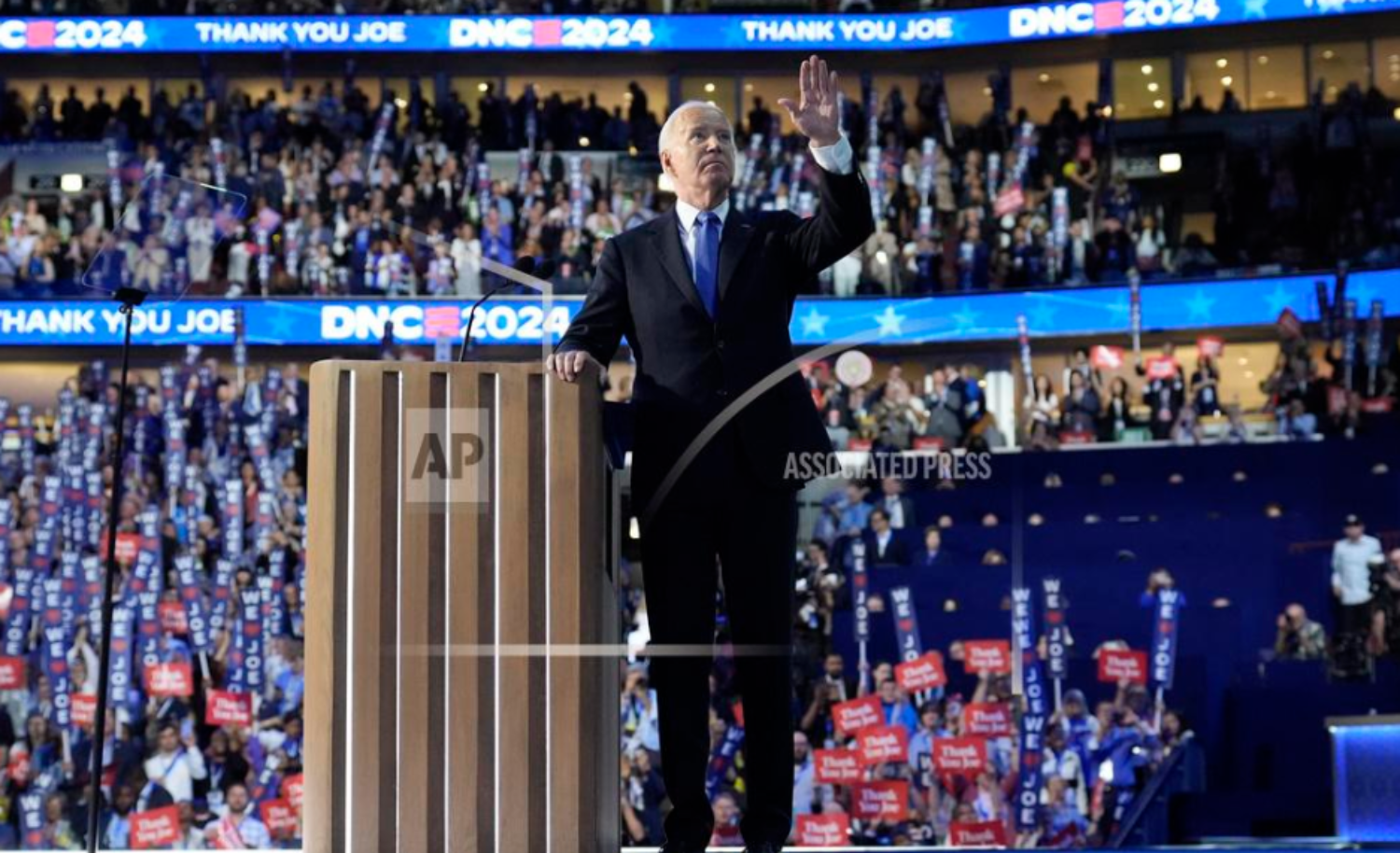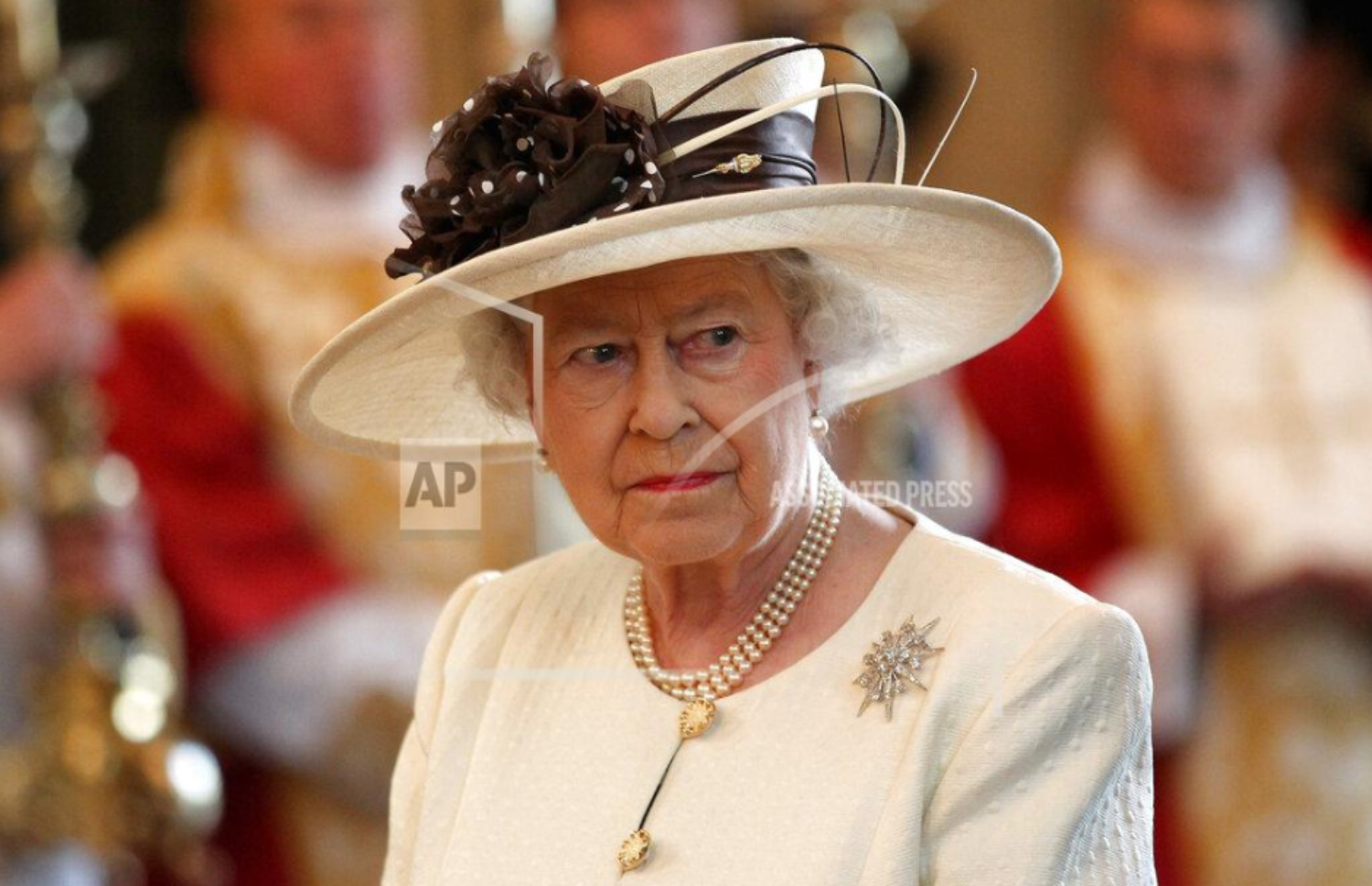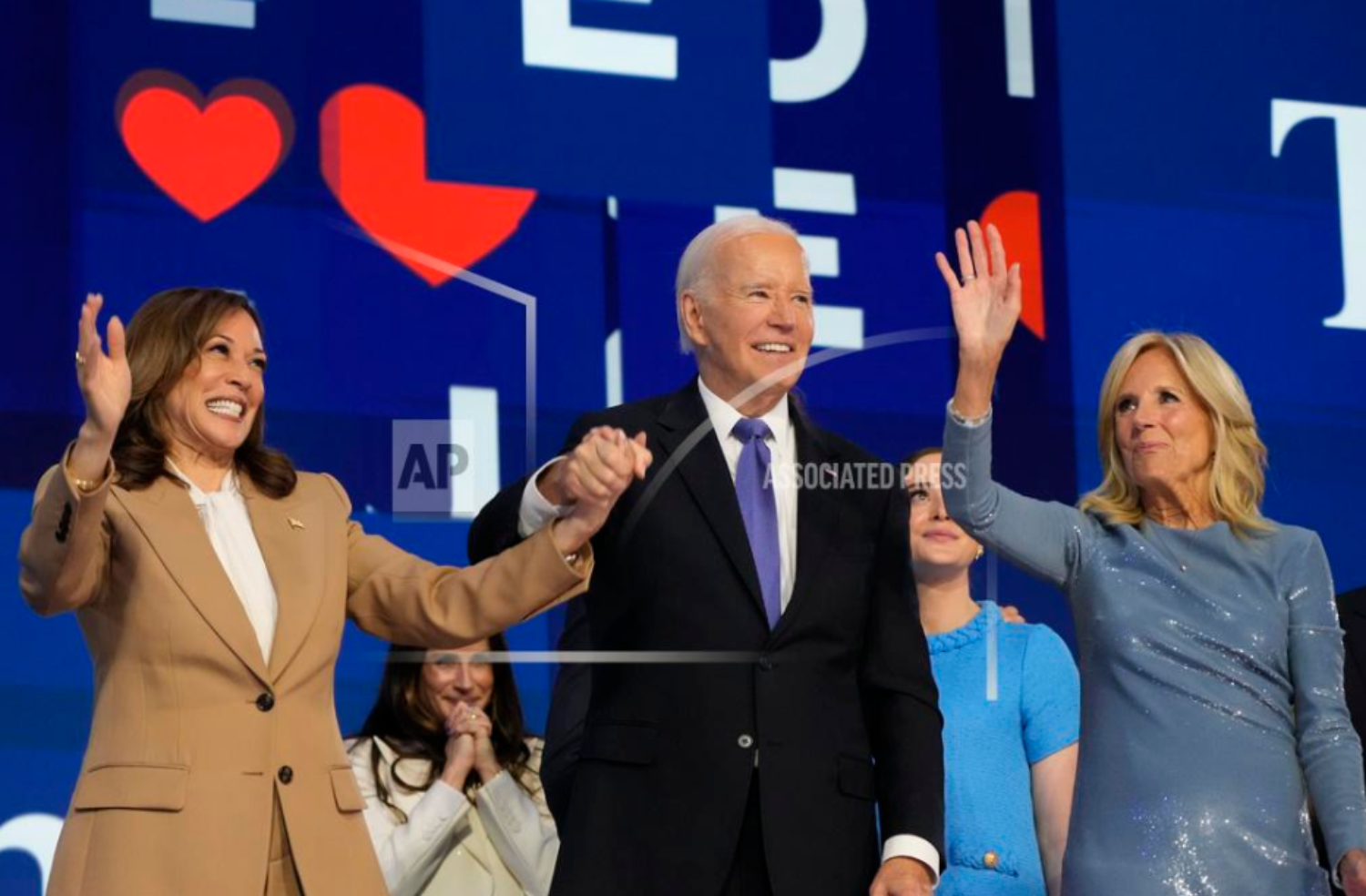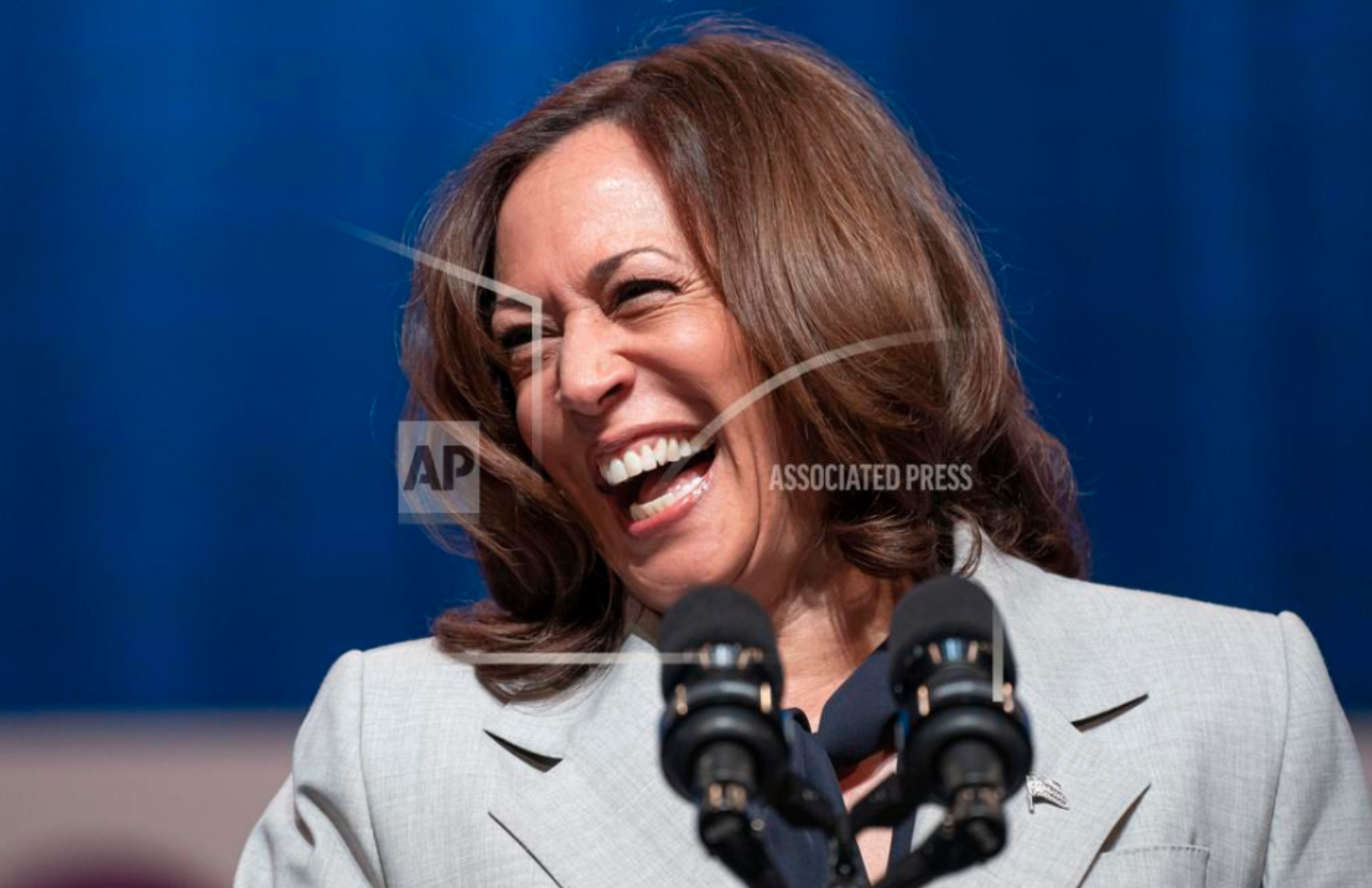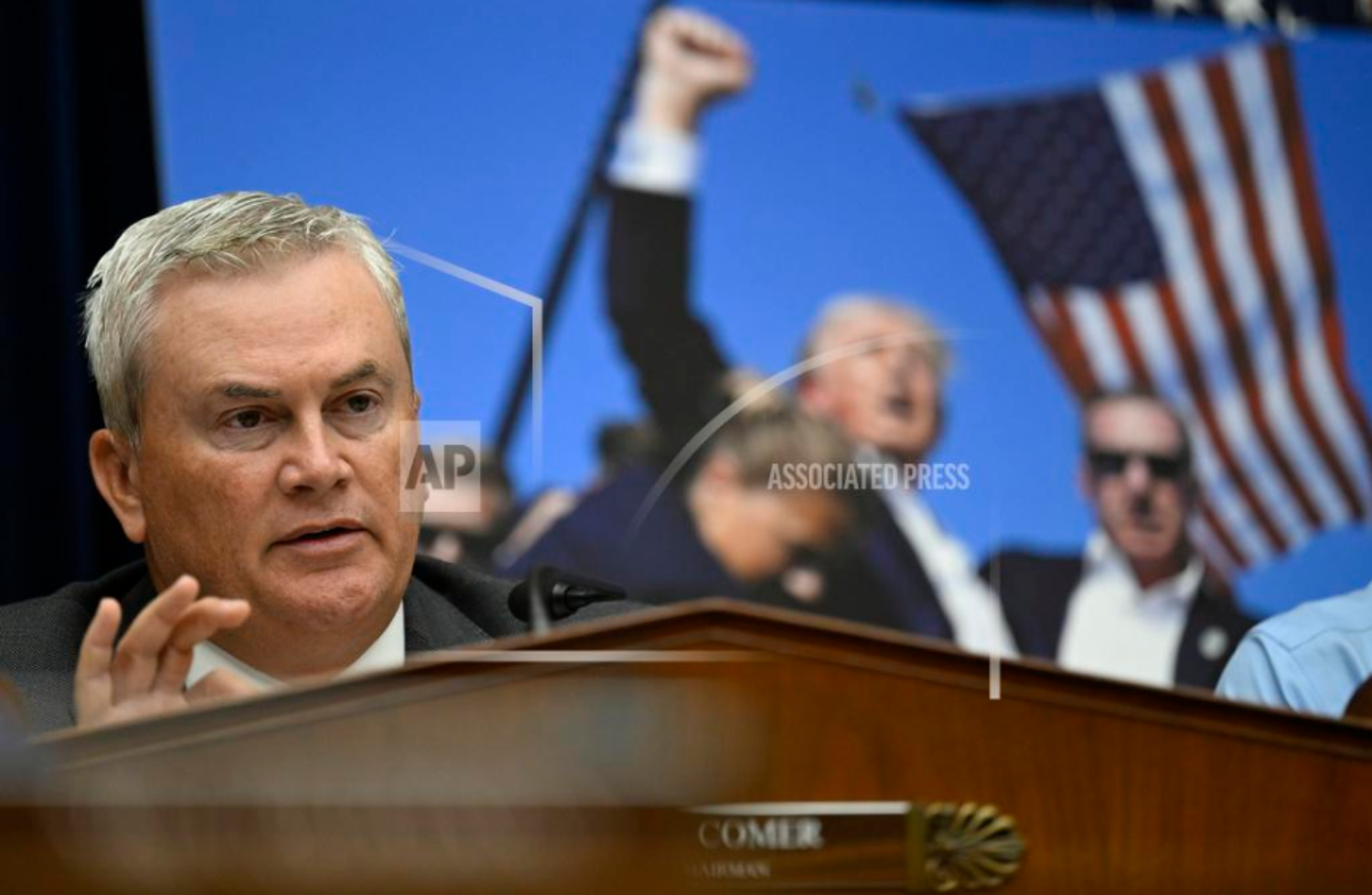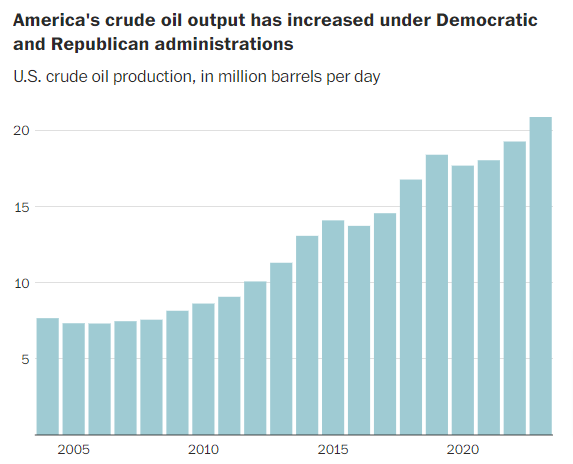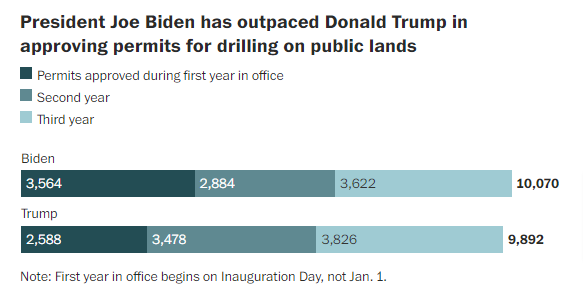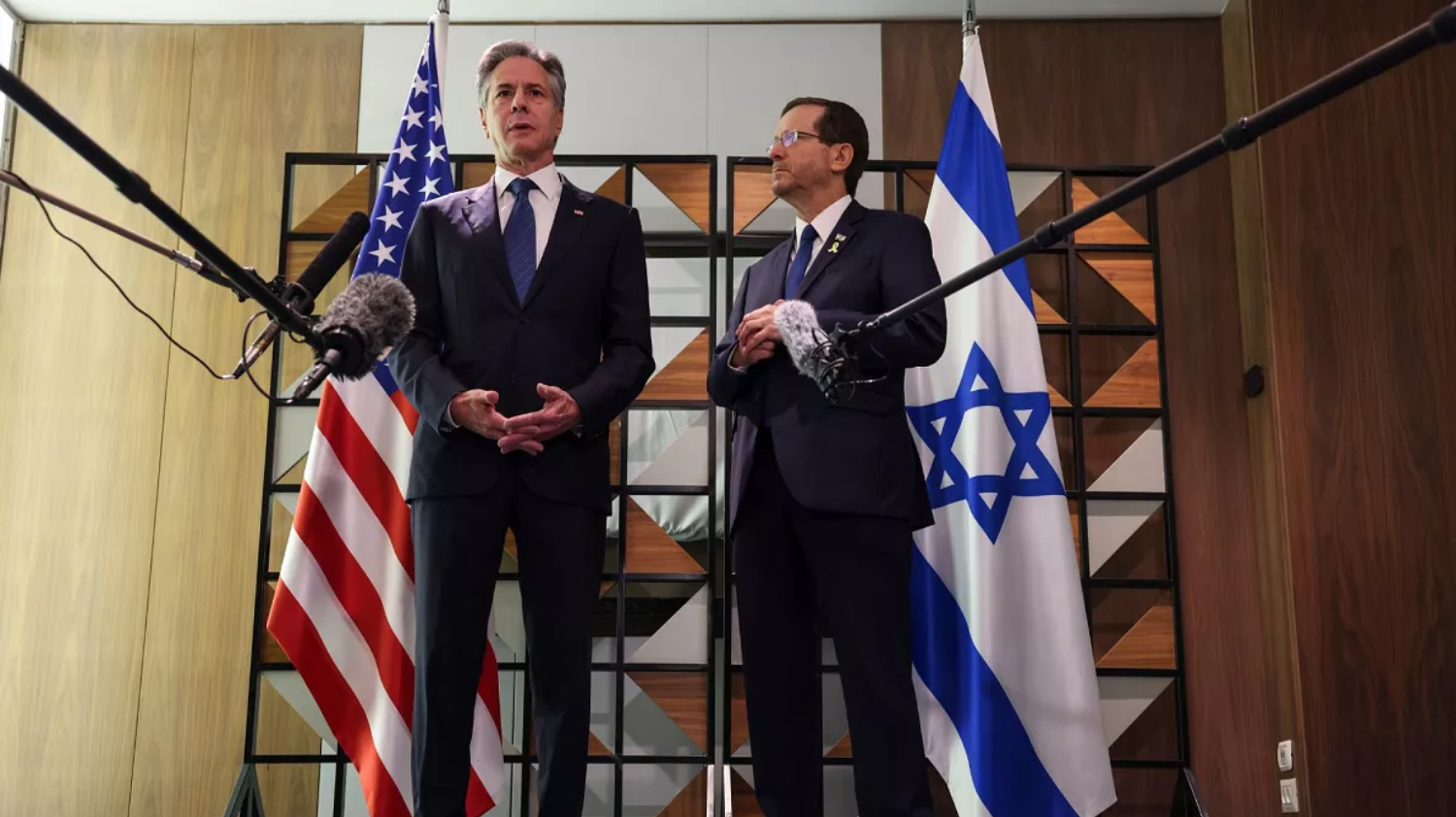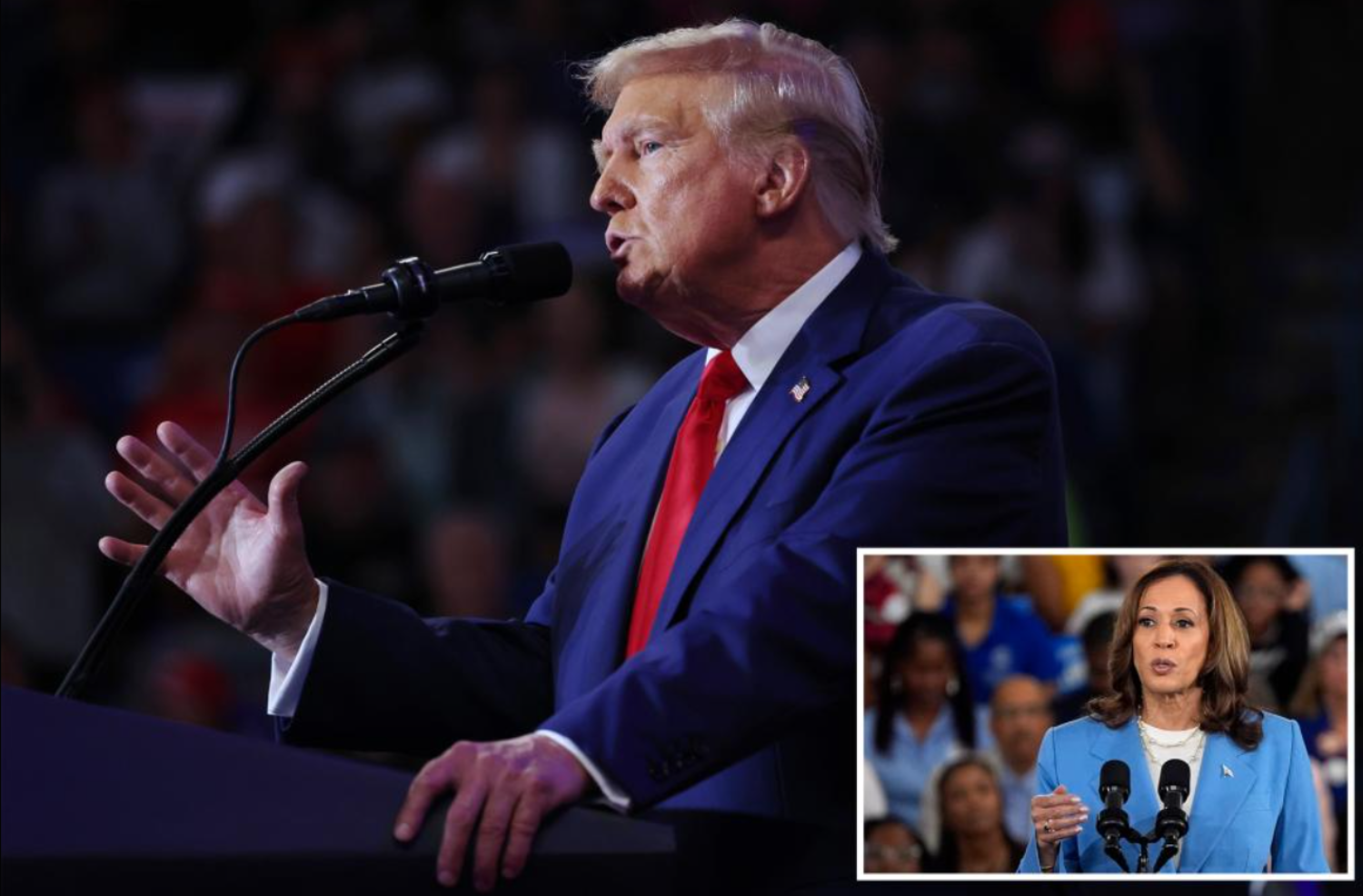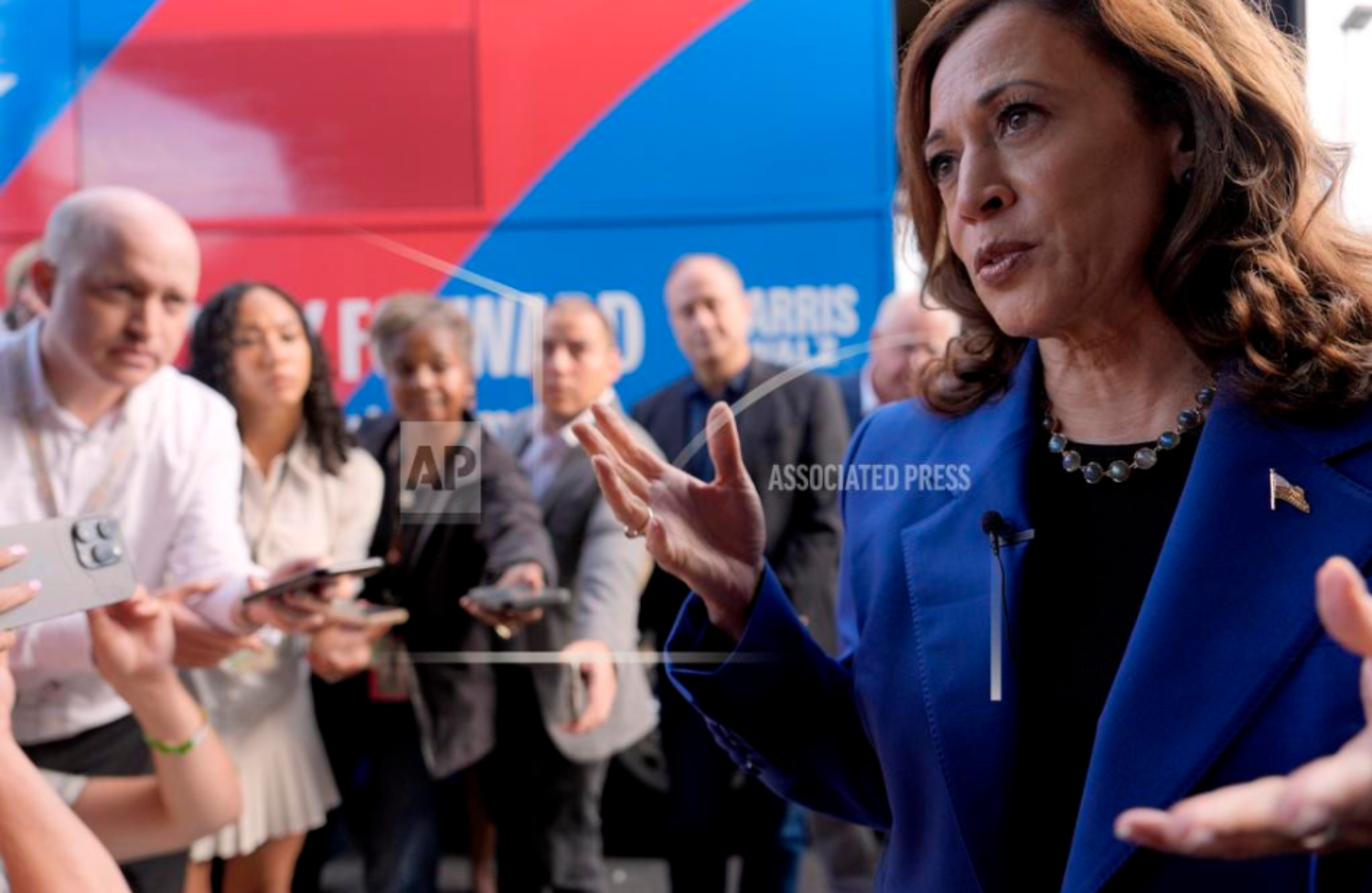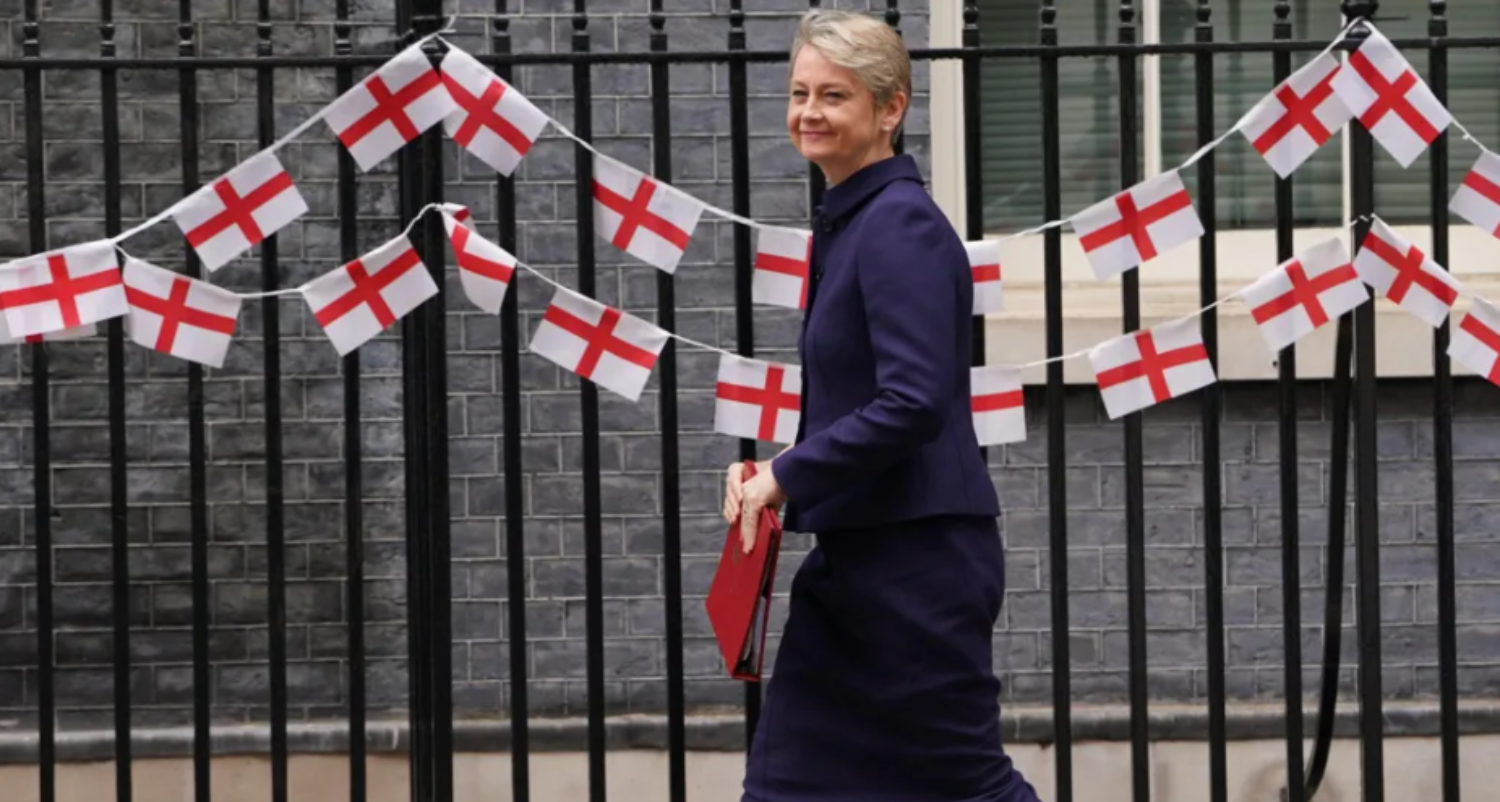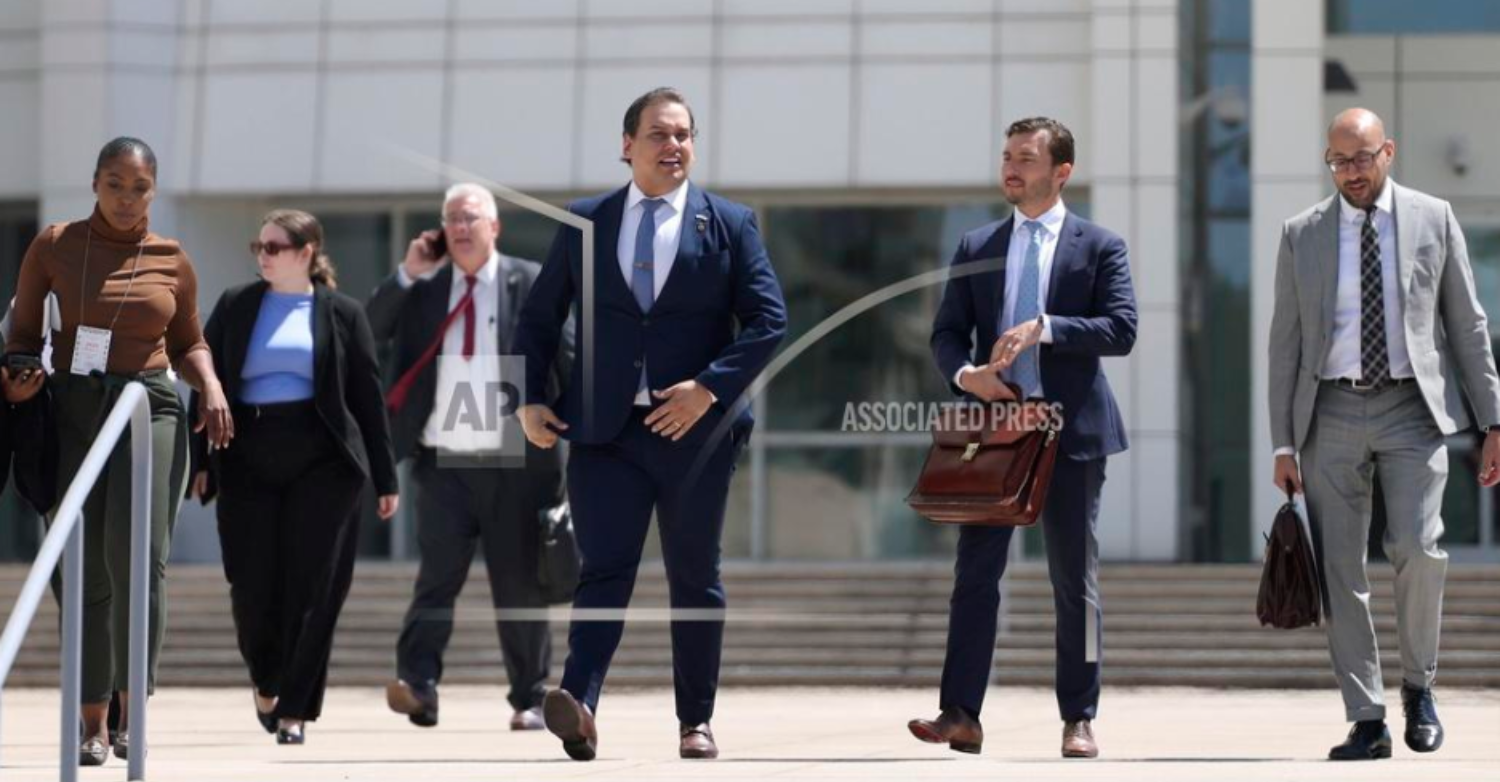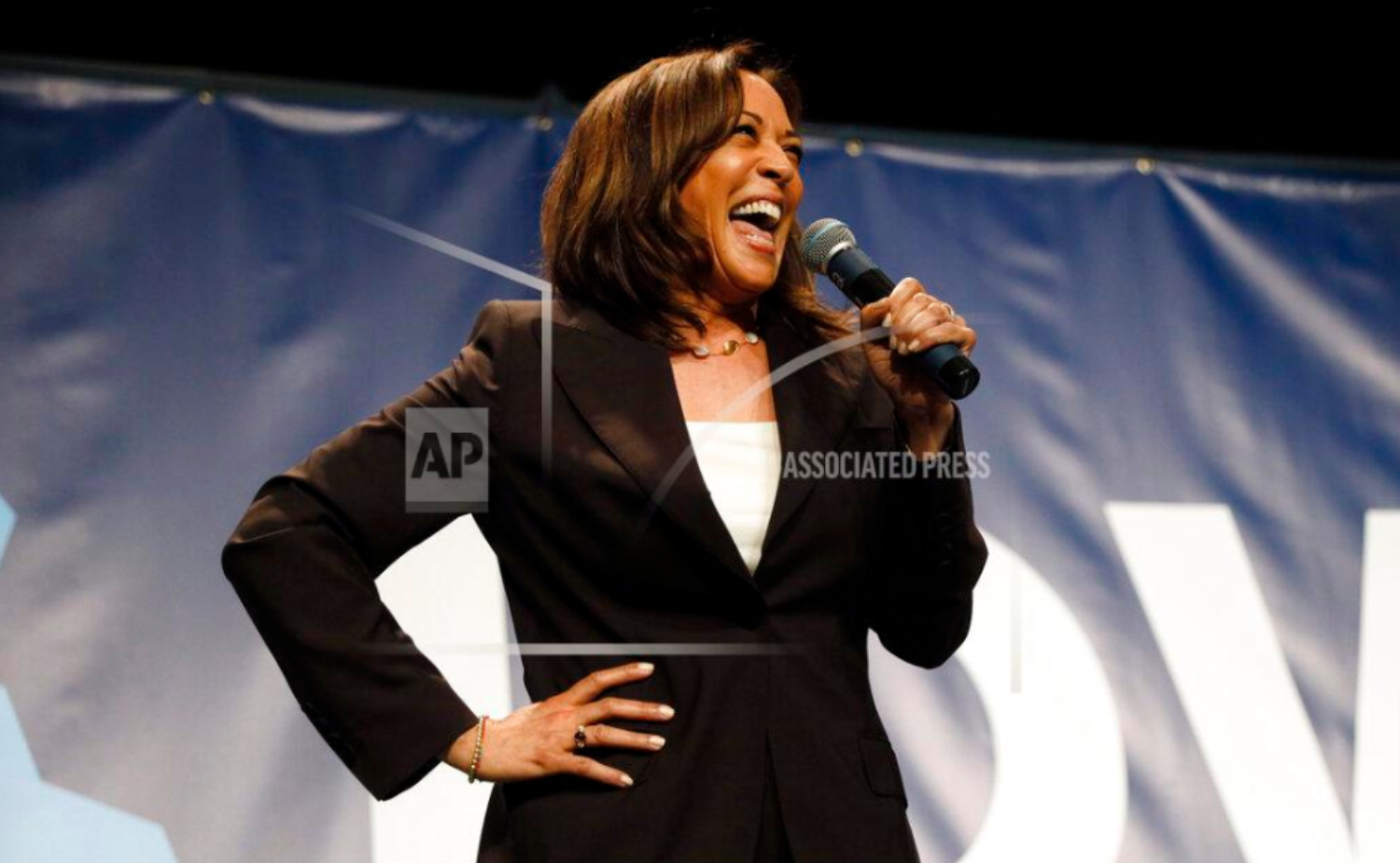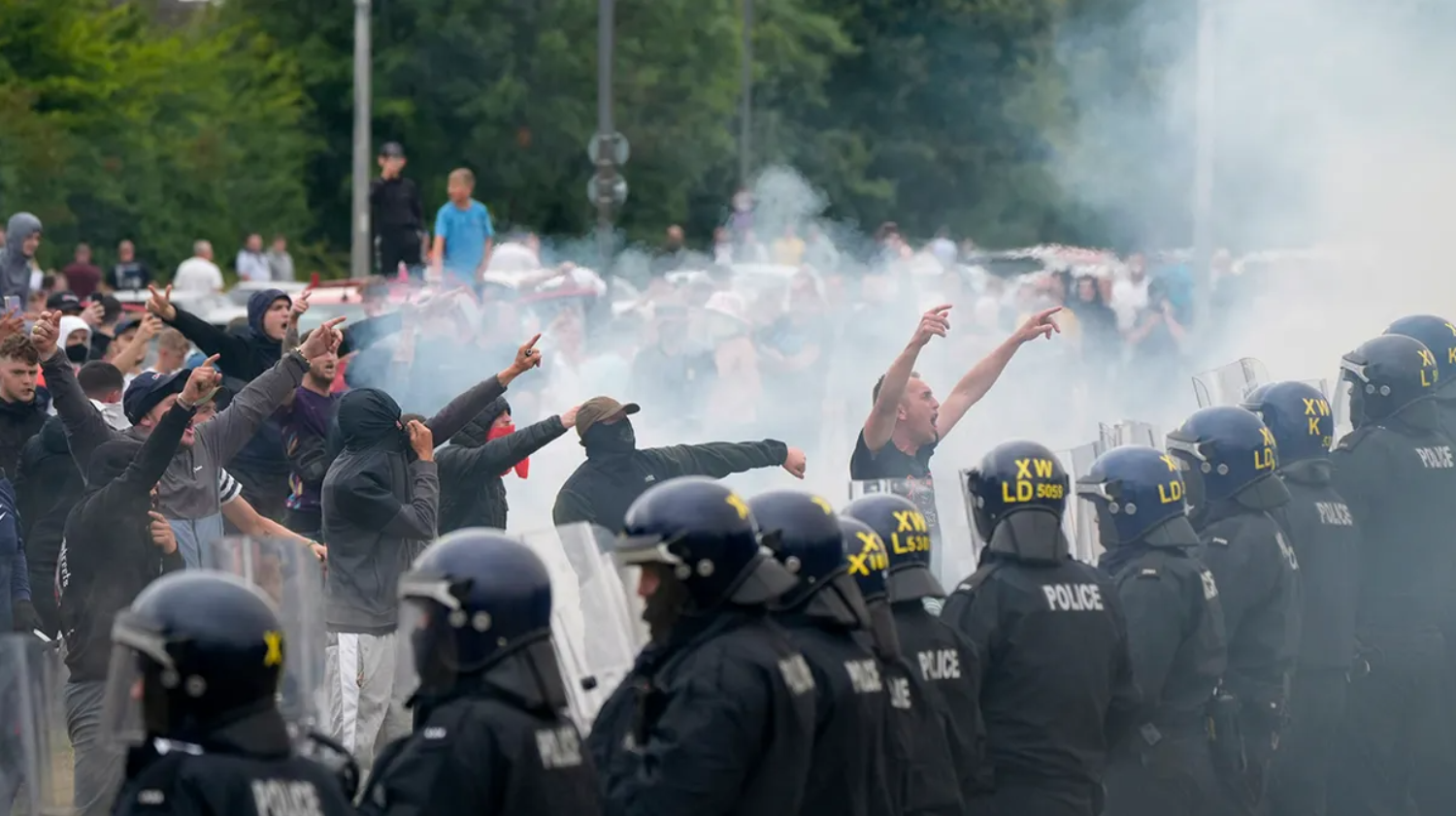-
Posts
10,097 -
Joined
-
Last visited
Content Type
Events
Forums
Downloads
Quizzes
Gallery
Blogs
Everything posted by Social Media
-
In a recent interview, former President Donald Trump revealed that he would consider offering Tesla CEO Elon Musk a position in his Cabinet if he wins the upcoming November election. The suggestion, which came during a conversation with Reuters, highlights Trump's admiration for Musk's intellect and capabilities. "He's a very smart guy. I certainly would, if he would do it, I certainly would. He's a brilliant guy," Trump stated, underscoring the high regard in which he holds Musk. This potential collaboration between the former president and the tech mogul is a reflection of Trump's strategic thinking, as he appears to be drawing on Musk's vast expertise in technology and business. During the same interview, Trump also hinted at a possible reversal of the $7,500 tax credit currently available to Americans who purchase electric vehicles. This tax credit has been a central component of the Biden administration's efforts to promote the adoption of electric vehicles as part of a broader strategy to combat climate change. Trump's openness to reconsidering this policy suggests a shift in the approach to environmental and energy issues that have been a focal point of the current administration. Musk, who has been a prominent figure in both the technology and automotive industries, also owns the social media platform X. His involvement in the political sphere has been evident, as he endorsed Trump in the presidential race and threw his support behind a super PAC that is backing the former president's bid for office. This endorsement aligns with Musk's growing influence in various sectors, and his potential role in a future Trump administration could further extend his reach. The connection between Trump and Musk was further solidified last week when the two engaged in a two-hour conversation on X. During this discussion, Musk indicated his willingness to contribute to a government commission focused on studying the national debt and exploring ways in which Congress could reassess federal spending. The possibility of Musk taking on a Cabinet position was not mentioned during this exchange, but his interest in addressing governmental efficiency was clear. "I think it would be great to just have a government efficiency commission that looks at these things to make sure taxpayer money is spent in a good way," Musk told Trump during their conversation. "I'd be happy to help out on such a commission." Musk's statement reflects his pragmatic approach to governance and fiscal responsibility, areas where his expertise could be particularly valuable. Trump's consideration of Musk for a Cabinet role, along with the latter's openness to contributing to government initiatives, signals a potential collaboration that could bring significant changes to how the federal government operates. As both figures are known for their unconventional approaches and willingness to challenge the status quo, their partnership could lead to innovative solutions to some of the most pressing issues facing the nation. While the idea of Musk serving in a Trump Cabinet remains speculative, the mere suggestion of such a partnership has generated considerable interest. Both Trump and Musk have made headlines for their bold decisions and influential roles in their respective fields, and a collaboration between the two could potentially reshape aspects of American governance, particularly in areas related to technology, energy, and fiscal policy. As the election approaches, it remains to be seen whether Musk will indeed be offered a Cabinet position or if he will choose to serve on a government commission as he has expressed interest in doing. However, the dialogue between Trump and Musk highlights the former president's strategic considerations in assembling a team that could address the nation's challenges in innovative ways. With Musk's track record of success in multiple industries, his involvement in a future Trump administration could have far-reaching implications for the country's direction. Credit: Hill 2024-08-22 Get our Daily Newsletter - Click HERE to subscribe
-
John Fetterman, the towering and unconventional senator from Pennsylvania, is no stranger to controversy or the complexities of his own party. Once hailed as a beacon of Rust Belt revitalization and a progressive champion, Fetterman has recently found himself increasingly at odds with the Democratic Party. His steadfast support for Israel, particularly in the wake of the October 7, 2023, Hamas attacks, has drawn both public protests and internal criticism. Despite the mounting pressure, Fetterman remains unyielding in his stance, emphasizing his commitment to what he perceives as the morally correct path, even if it means alienating himself from the very base that once celebrated him. Fetterman’s decision to skip the Democratic National Convention in Chicago this year has raised eyebrows and fueled speculation about his standing within the party. However, the senator is quick to dismiss any notion that his absence has anything to do with the growing discord over his pro-Israel stance. "I’ve got three young kids, and they’re out of school," Fetterman explained, emphasizing his desire to spend time with his family over the four-day event. He also clarified that the decision to miss the convention was made "well before that debate," referring to the June 27 confrontation between Joe Biden and Donald Trump, which ultimately led to Biden stepping aside and Kamala Harris securing the Democratic nomination. The contrast between Fetterman and Harris could not be starker. Fetterman, a six-foot-eight figure clad in hoodies and shorts, resides in Braddock, a struggling ex-steel town just outside Pittsburgh that has lost 90 percent of its population. Harris, on the other hand, owns a home in the affluent Brentwood neighborhood of Los Angeles and is often seen donning double-stranded pearls and pantsuits. While Fetterman’s politics are fueled by what seems to be an earnest and almost reckless sense of righteousness, Harris’s beliefs remain less clear, leaving some to question what she truly stands for. On the day of the Hamas attacks, Harris tweeted a message that was as inoffensive as it was unobjectionable: "Doug’s and my prayers are with the victims of the heinous terrorist attacks in Israel. @POTUS and my support for Israel’s security is unwavering." Meanwhile, Fetterman’s response was far more forceful: "I forcefully condemn these cowardly, horrifying, unprovoked attacks on Israel by Hamas. Attacking innocent civilians is particularly despicable and reflects the craven behavior of this terrorist group. I unequivocally stand with the people of Israel now, and always." This disparity in responses highlights the growing chasm within the Democratic Party, particularly when it comes to Israel. While Harris’s statement was designed to offend as few people as possible, Fetterman’s declaration left no room for ambiguity. It is perhaps this stark clarity in his position that has led to his increasing isolation within the party. When asked if he ever feels lonely in his own party, Fetterman responded with uneasy laughter, "Well, I mean, it’s, it’s… I keep saying, just like the convention, it’s not about me." Despite his reassurances, it’s difficult to ignore the shift that has taken place within the Democratic Party—a shift that has left Fetterman, once a symbol of Rust Belt cool and progressive values, out in the cold. In 2022, Fetterman was the darling of the left. He was bald, hulking, and adorned with a goatee and tattoos, projecting a surly demeanor that resonated with voters who felt the Democratic Party had drifted too far from its working-class roots. His support for LGBTQIA+ rights and pro-choice stance further endeared him to the party’s progressive wing. Celebrities like Kerry Washington, Padma Lakshmi, John Legend, and even Oprah Winfrey—who had previously helped launch the television career of Fetterman’s Trump-backed Republican opponent, Dr. Mehmet Oz—lined up to endorse him. But the love affair with Fetterman didn’t last. Alexandria Ocasio-Cortez, one of the most prominent voices of the progressive left, suggested in May that Fetterman is a bully. Former MSNBC host Mehdi Hasan lamented on Twitter that "a lot of folks don’t recognize John Fetterman these days." The Patriot-News, based in Harrisburg, published an op-ed titled "I wish I had never voted for you," addressing Fetterman directly. The turning point for Fetterman’s relationship with the progressive wing of the party appears to have been his shift away from identifying as a progressive. In December, the senator tweeted, "I’m not a progressive, I’m just a regular Democrat," signaling a departure from his earlier self-identification as a "progressive champion" during his unsuccessful Senate run in 2016. This shift, coupled with his unwavering support for Israel, has left many progressives feeling betrayed. Since the October 7 attacks, Fetterman has found an unexpected, albeit cautious, warmth from Republicans. "How is it possible that John Fetterman in the last few months has seemingly become more based than half of the Senate GOP???" Donald Trump Jr. tweeted in January. A Republican strategist, speaking on condition of anonymity, confessed, "No clue what this cat is up to." Fetterman’s embrace of border security may have contributed to this newfound, albeit tenuous, appreciation from the right, but his real transgression in the eyes of progressives has been his unflinching support for Israel. The backlash has been swift and unrelenting. In November, protesters outside the Capitol booed him. In January, anti-Israel protesters descended on Fetterman’s home in Braddock, where he defiantly took to the roof, waving an Israeli flag. Online, activists derisively dubbed him "Genocide John." Every Friday for months, protesters have demonstrated outside his Philadelphia office, chanting slogans like "Let Gaza live" and "Cease-fire now." These protests, known as "Fridays at Fetterman’s," have become a regular occurrence. The opposition to Fetterman’s stance isn’t limited to external activists. Even within his own office, there are staff members who disagree with him on Israel and Gaza. "I don’t agree with him," admitted Carrie Adams, Fetterman’s communications director, in a candid phone conversation. Adams suggested that Fetterman’s views are shaped by a less nuanced understanding of the region, influenced by the "might makes right" mentality prevalent during his formative years. In contrast, she noted that her generation and younger ones—who are often the ones protesting—tend to have a more nuanced view of the region. This level of internal dissent is rare in Washington, especially when it comes to criticizing "the principal," as Fetterman is known within his team. It underscores the generational and ideological divide that has opened up within the Democratic Party, particularly on issues related to Israel and Palestine. A January poll revealed that 65 percent of college students held a favorable opinion of the pro-Hamas encampments that took over many university campuses in the spring. This generational divide is not confined to college campuses; it has infiltrated the party’s ranks, threatening to erupt during the convention, where as many as 100,000 protesters are expected. Fetterman is keenly aware of the divide but remains steadfast in his convictions. "I’ve been frustrated by some of my members and how they’ve chosen to handle that situation," Fetterman said, referring to Israel’s war against Hamas. While he did not name specific Democratic members, it is likely he was alluding to the Squad and other members of the Progressive Caucus who have been vocal in their criticism of Israel. "I don’t agree with a lot of their views, but whatever kinds of political choices or any kind of political costs that I’ve incurred throughout all that, I don’t care." He added with conviction, "I haven’t once even regretted any of that." Fetterman’s unconventional style and progressive policies made him a darling of the left, but his recent shift on Israel has caused a rift with the progressive wing of the Democratic Party. His decision to distance himself from the progressive label and his unwavering support for Israel have led to accusations of betrayal from some of his former supporters. Despite the criticism, Fetterman remains unapologetic. He argues that his support for Israel is rooted in a commitment to justice and the protection of innocent lives. "There’s a moral imperative to support Israel in its fight against terrorism," Fetterman has said. "Hamas is a terrorist organization that has killed thousands of innocent people. To equate their actions with those of a democratic state like Israel is not only wrong but dangerous." Fetterman’s stance has earned him praise from some quarters, including Republicans who see him as a rare Democratic voice willing to stand up for Israel. However, it has also alienated him from many of his former allies on the left. The protests outside his home and office, as well as the criticism from within his own team, are indicative of the deep divisions that have opened up within the Democratic Party on this issue. He is driven by a deep sense of moral duty, one that often puts him at odds with the very people who once supported him. In the end, Fetterman’s journey from progressive hero to polarizing figure within his own party underscores the complexities of modern American politics. It is a reminder that even in a time of deep political polarization, there are still those who are willing to stand firm in their beliefs, no matter the cost. Whether Fetterman’s stance will ultimately prove to be politically wise or whether it will cost him the support of his party remains an open question. For now, he seems content to weather the storm, confident in the righteousness of his cause and unafraid of the consequences. Credit: TFP 2024-08-22 Get our Daily Newsletter - Click HERE to subscribe
-
In a political landscape where the far right is gaining ground in various parts of the world, Britain’s newly elected Prime Minister, Keir Starmer, has chosen a seemingly unconventional approach to counter this threat. While many leaders opt for stringent immigration policies or aggressive rhetoric, Starmer’s strategy is rooted in pragmatism and a desire to restore the public’s faith in government. His allies believe that addressing tangible, everyday issues like potholes in the roads and reducing hospital waiting times could be the key to defeating the far right in Britain. Starmer’s recent visit to Belfast underscored his commitment to tackling the aftermath of a series of anti-immigration riots that had erupted across Britain. These riots, a rare occurrence of violent lawlessness, demanded an urgent and robust response from the government. The initial reaction was to focus on law and order, a strategy that aligned with Starmer’s background as a former prosecutor. The government swiftly deployed extra police officers, held additional court hearings, and the U.K. Home Office called for volunteers to assist in handling the situation. By the end of the week, over 1,000 people had been arrested, and more than 600 charges had been issued in connection with the riots, as reported by the National Police Chiefs’ Council. However, the more significant challenge for Starmer lies in addressing the deep-rooted socio-economic issues that have created the conditions for such violence. Starmer’s team believes that the answer to these problems lies in demonstrating that politics can solve real-world issues, thereby rebuilding Britain’s battered faith in its political system. A Labour MP close to Starmer, who spoke on condition of anonymity, emphasized the need to be pragmatic and clear about why politics is still relevant. "There is a deep sense that nobody is listening and that politics doesn’t make any difference. We have to be very pragmatic and clear about why that is not true," the MP stated. Starmer’s crackdown on rioters has resonated with the public, fitting neatly with his law-and-order credentials. Polling data shows that the majority of the electorate viewed the violent unrest as unacceptable, with two-thirds of voters characterizing the participants as “thugs,” according to research by YouGov. However, while only a small minority supported the violence, 16 percent of respondents believed that the rioters had legitimate concerns, with many pointing to immigration policy as a contributing factor. Luke Tryl, director of the polling firm More in Common, highlighted a widespread disillusionment with politics among the British public. "Politics isn’t working and it can’t deliver," Tryl noted, emphasizing that this sentiment extends beyond immigration issues to include everyday concerns such as access to healthcare, long waiting lists, and the rising cost of living. "That is something that politicians need to grasp because it is not sustainable to have a functioning democracy with such high levels of disillusionment," he added. Starmer and his team have long been considering how to address this deep-seated alienation. Their strategy is focused on delivering tangible results over the course of their parliamentary term. The same Labour MP close to Starmer mentioned earlier explained, "The central idea was focusing on a thing that we know we can do, and then doing it over the course of the parliament." This approach might involve something as seemingly simple as "mending every single pothole in Britain," a task that could serve as a symbol of political relevance in areas affected by the riots. The idea of focusing on practical, everyday issues has been influenced by the experience of local Labour politicians who successfully took on the British National Party (BNP) in the early 2000s. The BNP had made significant gains in Barking and Dagenham, a traditionally white, working-class area in East London. Margaret Hodge, a former Labour MP for Barking, drew parallels between the rise of the BNP and the current situation. Hodge recalled that at the time, people felt that the government was not listening to them or understanding their day-to-day problems. The response, she said, was not about "rocket science," but about addressing local concerns such as littering, graffiti, and parking shortages. One of the architects of this local strategy was Morgan McSweeney, who is now Starmer’s right-hand man in Downing Street. McSweeney played a crucial role in formulating Labour’s successful strategy during the 2024 election campaign and is now focused on ensuring that the government delivers on its promises. A senior Labour politician close to No. 10 mentioned that McSweeney is deeply engaged in the process of understanding the various factors contributing to the rise of the far right and devising strategies to counter it. "How to get these people arrested and banged up. And then more deeply about the politics and about the different strands behind it and what the government has to do to counter it," the politician stated. Despite the clear focus on addressing practical issues, some observers believe that Starmer needs to go beyond a purely pragmatic response. Parth Patel, a senior research fellow at the left-leaning think tank IPPR, suggested that there might be a reluctance on the part of Downing Street to engage in conversations about migration. "But if the government doesn’t articulate its views on identity and immigration in modern Britain, basically the most contentious issue of the 21st century, those debates will continually be dragged to the far right," Patel warned. Hodge agreed with the need for a more comprehensive approach. "Now we’re in government, we have a very powerful voice that can start developing a different discourse about integration," she said. The importance of addressing immigration and community identity cannot be overstated, especially as these issues have surged to the top of the list of public concerns, alongside law and order. Successfully articulating a new position for Labour on these issues may prove as challenging as reducing NHS waiting times, but Starmer has one significant advantage at this point in his premiership. As Tryl observed, "People might have low expectations of this government, but they definitely want him to give it a shot, and they want him to succeed." Credit: Politico 2024-08-22 Get our Daily Newsletter - Click HERE to subscribe
-
In a spirited address at the Democratic National Convention in Chicago, President Joe Biden spoke to a crowd that, until recently, he had expected to address as the party's presidential nominee. Instead, Biden, who chose to cede the nomination to Vice President Kamala Harris following concerns about his age, used his speech to pass the torch to a new leader while emphasizing the threats to democracy posed by extremism. His speech, frequently interrupted by chants of "Thank you, Joe," reflected his commitment to the party and his determination to safeguard democratic values. Biden’s address was marked by moments of passion, particularly when discussing the preservation of democracy. "We came together in 2020 to save democracy," Biden declared, his voice rising in anger as he recounted the challenges faced during his presidency. Harris, who had surprised the audience with an earlier appearance at the lectern, echoed this sentiment, saying, "When we fight," before the crowd finished the phrase, "we win." The energy of the evening was palpable, with multiple speakers highlighting the significance of this moment in American political history. Among those who praised Biden was former Secretary of State Hillary Clinton, who acknowledged Harris' historic role as the second woman to head a Democratic ticket. Clinton also paid homage to other pioneering Democratic women, including Shirley Chisholm, the first Black woman to run for president in 1972, and Geraldine Ferraro, the first female vice-presidential nominee from a major American political party in 1984. The night was filled with reflections on the progress made and the challenges ahead, as the Democratic Party prepared to move forward under new leadership. Throughout the evening, speakers criticized the policies of former President Donald Trump, particularly those concerning the Supreme Court's decisions that led to the overturning of Roe v. Wade. The repeated slogan, "We’re not going back," underscored the party's commitment to preserving the rights that were at risk of being rolled back. In his speech, Biden highlighted several key issues, making claims that warranted closer examination. Below is an analysis of some of the statements made by Biden and other speakers during the convention’s first night, along with fact-checking based on available data and expert opinions. Abortion and Trump’s Stance Biden claimed that "Trump will do everything to ban abortion nationwide." This statement requires a nuanced analysis. Since April, Trump has consistently stated that he believes abortion legislation should be "left up to the states." In April, he told reporters that he would not sign a national ban. However, during his presidency, Trump endorsed a 20-week national abortion ban that was supported by House Republicans. Earlier in the 2024 election year, he also suggested support for 15- or 16-week federal abortion bans, as reported by various news outlets. While Trump has not explicitly advocated for a nationwide abortion ban, his support for federal restrictions indicates that Biden’s claim, while not entirely accurate, is rooted in concerns about Trump’s potential influence on abortion legislation. Further complicating this issue is the ambiguity surrounding Trump's position on other methods of restricting abortion, such as using the Comstock Act to ban the mailing of abortion pills or equipment used in abortion procedures. Trump's stance on these matters remains unclear, leaving room for interpretation and concern about the potential implications of his policies. The DNC’s Video Advertisement on Trump and Abortion A DNC video advertisement highlighted a statement Trump made in 2016, where he said, "There has to be some form of punishment" for women who have abortions. However, this ad is misleading as it fails to acknowledge that Trump quickly walked back this comment after facing widespread criticism. He clarified that it was doctors, not women, who should be punished for performing illegal abortions. Since then, there has been no evidence to suggest that Trump has reiterated this position or currently supports penalties for women who undergo abortions. Therefore, the ad’s portrayal of Trump’s stance is mostly false, as it omits critical context and misrepresents his current views. Health Care and Insulin Costs Biden claimed that "Instead of paying $400 a month for insulin, seniors with diabetes will pay $35 a month." This statement is partially accurate. The Inflation Reduction Act, which Biden signed into law in 2022, indeed capped out-of-pocket insulin costs at $35 a month for Medicare enrollees starting in 2023. However, drug pricing experts and research suggest that most Medicare enrollees were not paying $400 a month for insulin before these changes. A government estimate found that people with diabetes enrolled in Medicare or private insurance paid an average of $452 a year—approximately $38 a month. Uninsured users, on the other hand, paid significantly more, averaging about $996 annually. While some Medicare enrollees may have paid $400 in a given month, the statement requires context to avoid misleading implications. Social Security and Medicare Biden also stated that "Trump wants to cut Social Security and Medicare." This assertion is mostly false, particularly regarding Social Security. Although Trump has previously expressed openness to overhauling Social Security, including cuts and privatization, his stance has evolved. In a March 2024 CNBC interview, Trump mentioned that "There’s a lot you can do in terms of entitlements, in terms of cutting," but he quickly retracted this statement. His campaign website explicitly states that not "a single penny" should be cut from Social Security. Regarding Medicare, Trump has said during the 2024 presidential campaign that he will not cut the program. However, it is worth noting that during his presidency, Trump proposed cuts to Medicare in four successive annual budgets, though experts remain divided on the potential impact of these cuts on beneficiaries. Biden’s claim, therefore, exaggerates the current stance of Trump and his campaign. Immigration and Border Encounters Addressing immigration, Biden stated, "The result of the executive action I took: Border encounters have dropped over 50 percent. In fact, there are fewer border crossings today than when Donald Trump left office." This statement is mostly true, but it requires context. Illegal border crossings in July 2024 were indeed lower than in December 2020, Trump’s last full month in office. However, experts caution against attributing changes in immigration solely to a single policy. The executive action in question, which limits the ability to apply for asylum at the southwest border, took effect in June, making it difficult to determine whether the declining trend will continue. In July, Border Patrol reported 56,408 encounters, a 52 percent drop from May's 117,900 encounters. Comparatively, in December 2020, there were 71,140 encounters. While Biden’s statement is accurate, it oversimplifies a complex issue that involves multiple factors and policies. Crime Rates and Trump’s Tenure Biden claimed that "On (Trump’s) watch the murder rate went up 30 percent, the biggest increase in history." This statement is half true. The number of murders in the United States did increase significantly from 2019 to 2020, with a rise of about 35 percent, making it the largest one-year increase since systematic record-keeping began in the early 1960s. However, most crime data analysts attribute the spike to a combination of the COVID-19 pandemic and the social unrest following George Floyd’s murder, rather than Trump’s direct actions. While the murder rate did rise dramatically during Trump’s presidency, attributing this solely to his watch oversimplifies the contributing factors. The Semiconductor Industry and Wage Claims In his speech, Biden claimed that the average semiconductor industry salary "will be over $100,000 a year, and you don’t need a college degree." This statement is mostly false. While the average salary in the semiconductor industry is around $170,000 according to the Semiconductor Industry Association and Oxford Economics, this figure includes all jobs within the industry, not just those that do not require a college degree. The most a person without a four-year degree can typically make in the industry is about $70,000, according to a 2021 report from the Semiconductor Industry Association and Oxford Economics. Biden’s claim, therefore, overstates the earning potential for those without a college degree in the semiconductor industry. The Racial Wealth Gap Biden also mentioned that during his tenure, there has been the "smallest racial wealth gap in 20 years." This statement is half true. Biden was referencing 2022 Federal Reserve data that showed a modest decrease in the wealth ratio between white and Black Americans. For every $100 the average white family held in wealth, the average Black family had $15.75. While this was the smallest gap in 20 years by one measure, another measure—the dollar amount difference in wealth—showed that the gap widened to its largest disparity since 1989. Therefore, Biden’s claim is partially accurate but does not capture the full complexity of the racial wealth gap. Tax Rates on Billionaires Biden claimed that "We have 1,000 billionaires in America. You know what their average tax rate (is)? 8.2 percent." This statement is false. The richest Americans currently pay an effective tax rate of more than 20 percent on income recognized by the government under the current tax code. Biden’s figure of 8.2 percent is based on a comparison that includes income not currently taxed under law, making it a theoretical figure rather than an accurate representation of what anyone is supposed to pay under the existing tax system. As a result, Biden’s statement is misleading and does not reflect the actual tax rates paid by billionaires. Trump and the Rule of Law Former Secretary of State Hillary Clinton: Trump “fell asleep at his own trial, and when he woke up, he made his own kind of history: the first person to run for president with 34 felony convictions.” It’s unclear whether Trump fell asleep during the Manhattan trial that ended with the former president found guilty on all counts. The New York Times’ Maggie Haberman reported that Trump “appeared to nod off a few times, his mouth going slack and his head drooping onto his chest.” But Trump and his team have rebutted the he-was-sleeping claims. Trump was found guilty on 34 felony counts of falsifying business records in a scheme to cover up a hush money payment to adult film actor Stormy Daniels before the 2016 presidential election. The U.S. Constitution doesn’t prevent Trump from running for president following his conviction. Convicted felons have run for president in the past. Conclusion Biden’s DNC speech and the subsequent remarks by other speakers highlighted critical issues facing the nation while passing the mantle of leadership to a new generation. While many of the claims made during the speech were rooted in truth, several were either misleading or lacked the necessary context for a complete understanding. As the 2024 election approaches, it is essential to critically assess statements made by political figures to ensure that voters are informed by accurate and comprehensive information. The speech, while evocative and energizing, serves as a reminder of the need for careful scrutiny of political rhetoric in the pursuit of a fair and democratic process. Credit: PBS 2024-08-21 Get our Daily Newsletter - Click HERE to subscribe Cigna offers a variety of health insurance plans designed to meet the minimum requirement for medical treatment coverage, with benefits reaching up to THB 3 million. These plans are tailored to provide comprehensive healthcare solutions for expatriates, ensuring peace of mind and access to quality medical services. To explore the full range of Cigna's expat health insurance options and find a plan that suits your needs, click here for more information.
-
A new biography of Queen Elizabeth II, written by the veteran journalist Craig Brown, has revealed candid and striking remarks the late monarch allegedly made about former U.S. President Donald Trump and his wife, Melania. Known for her discretion and astute judgment, Queen Elizabeth reportedly described Trump as "very rude" and speculated that he and Melania must have had "some sort of arrangement," questioning why she would have remained married to him otherwise. These claims are made in Brown's book, *A Voyage Around The Queen*, which is being serialized in the Daily Mail. The biography offers an intriguing blend of well-known anecdotes and fresh insights into the queen's life, drawing on Brown's connections within elite circles. The journalist, who has a background in Parliamentary sketch writing and contributions to the satirical magazine Private Eye, has long been regarded as an insider in British high society. His previous works, including a kaleidoscopic biography of Princess Margaret, have been praised for their originality and depth. In the new book, Brown recounts that a few weeks after Trump's visit to the United Kingdom in 2018, Queen Elizabeth confided in a lunch guest that she found the then-president "very rude." The queen reportedly took particular issue with Trump's habit of looking over her shoulder, as if he were searching for someone more interesting to engage with. This behavior, according to Brown, especially irked the queen. Furthermore, the queen is said to have speculated about the nature of Trump’s marriage to Melania, suggesting to her guest that the couple must have had some kind of arrangement. "Why would she have remained married to him?" the queen reportedly mused, expressing her bewilderment at the dynamics of their relationship. These revelations are particularly striking given the queen’s reputation for being a consummate diplomat who rarely voiced her personal opinions, especially in public or to those outside her immediate circle. Her comments, as recounted by Brown, offer a rare glimpse into her private thoughts about one of the most controversial figures she hosted during her long reign. Trump, for his part, has often spoken highly of Queen Elizabeth, describing their meetings in glowing terms. Following his state visit in 2019, Trump told Fox News that they had shared a jovial time together, saying, "We were laughing and having fun. And her people said she hasn’t had so much fun in 25 years." He later faced criticism for these remarks, with some suggesting that the lighthearted nature of the visit was inappropriate. Despite Trump’s public admiration for the queen, Buckingham Palace has not commented on the claims made in Brown’s book. The revelations add to the complex portrait of Queen Elizabeth as a leader who, while often seen as reserved, could also be a sharp judge of character, unafraid to express her true feelings in private. Brown’s biography, like his earlier work on Princess Margaret, combines a mix of well-known stories with original reporting, offering readers new insights into the lives of the British royal family. His portrayal of Queen Elizabeth, especially in her interactions with figures like Trump, provides a fresh perspective on the late monarch, highlighting her discerning nature and her ability to navigate the complexities of her role with both grace and subtlety. As the serialization of *A Voyage Around The Queen* continues, it is likely that more revelations will emerge, further illuminating the private thoughts and feelings of a monarch who was often viewed as inscrutable. For now, these accounts of her encounters with Donald Trump offer a fascinating glimpse into the inner world of Queen Elizabeth II, a figure who, even in her passing, continues to captivate the public imagination. Credit: Daily Beast 2024-08-21 Get our Daily Newsletter - Click HERE to subscribe Cigna offers a variety of health insurance plans designed to meet the minimum requirement for medical treatment coverage, with benefits reaching up to THB 3 million. These plans are tailored to provide comprehensive healthcare solutions for expatriates, ensuring peace of mind and access to quality medical services. To explore the full range of Cigna's expat health insurance options and find a plan that suits your needs, click here for more information.
-
Nvidia Research has unveiled a groundbreaking generative AI weather model. This new model, which represents a significant leap forward in the accuracy of short-range weather forecasting, holds the potential to revolutionize how we predict and respond to natural disasters such as flash floods and tornado outbreaks. Nvidia shared the details of this innovative model with Axios, marking a pivotal moment in the intersection of technology and meteorology. The importance of this development cannot be overstated. Nvidia claims that this is the first AI model to demonstrate enhanced capability in simulating extreme weather events with precision down to the kilometer scale. If these findings are validated by other researchers, we could be on the cusp of a new era in weather forecasting. The implications of such advancements are profound, as more accurate short-term forecasts could save lives and protect property by providing more reliable warnings of impending weather hazards. Historically, AI weather and climate models developed by tech giants like Nvidia, Microsoft, and Google, as well as various research institutions, have shown promise in generating medium-range, global weather projections. These models have sometimes rivaled or even surpassed traditional, physics-based models that require the immense computing power of supercomputers. However, Nvidia’s latest model, as outlined in a new preprint study, takes this technology a step further. It not only delivers accurate forecasts but also offers the potential to refine global climate change projections for more precise application at local scales. This process, known as "downscaling," has traditionally been limited by computational constraints, but Nvidia's model could help overcome these barriers. "I'm convinced we're at that moment now where AI can compete with physics for storm-scale prediction," said Mike Pritchard, a climate scientist at Nvidia and a coauthor of the study, in an interview with Axios. His confidence underscores the transformative potential of this technology. The model, referred to as StormCast, is detailed in a paper submitted for peer review, co-authored by researchers from the Lawrence Berkeley National Laboratory and the University of Washington. Nvidia asserts that StormCast can operate at the mesoscale level, meaning it can resolve small-scale weather systems and simulate some of the complex physics involved in the formation, intensification, and dissipation of thunderstorms. These "convection-allowing models" are crucial for predicting the development of dangerous weather phenomena like derechos, squall lines, and deadly flash floods. According to the study, StormCast already outperforms the top U.S. short-range weather prediction model, the High-Resolution Rapid Refresh (HRRR), particularly in predicting the evolution of storms as observed on weather radar. Despite these advances, Pritchard emphasizes that traditional physics-based approaches should not be entirely supplanted by generative AI. Instead, he suggests that AI can be used to enhance and test the "physical credibility" of new models, ensuring that we can trust AI predictions and understand their limitations. The field of weather prediction and climate research is undergoing a rapid transformation, driven by the capabilities of AI models. These models offer significant advantages in terms of computational power and timeliness compared to traditional methods. While experts generally agree that the future of weather and climate forecasting will involve greater reliance on AI, there is also a consensus, including among Nvidia Research, that the established, proven methods should not be abandoned. One of the most intriguing aspects of AI models like StormCast is their ability to generate forecasts in minutes using readily available computers, a stark contrast to the hours it takes for traditional models to run on the world’s most powerful supercomputers. This speed opens up the possibility of incorporating such models into ensemble systems, where the model is run multiple times with slightly varied initial conditions. This approach can help forecasters assess the sensitivity of their predictions to changes in various parameters, thereby increasing confidence in the forecast or highlighting areas of uncertainty where storm behavior might differ from expectations. Nvidia, as a leader in AI-enabling chip technology, has made substantial investments in advancing scientific knowledge across various disciplines, including weather and climate science. The company has even created a digital twin of Earth, which Taiwan plans to use to improve typhoon predictions. StormCast is capable of producing hourly forecasts at small geographic scales, leveraging generative AI that has been trained on historical weather observations and forecast outcomes. Nvidia Research asserts that it is the first AI weather simulation to accurately predict variables like temperature and moisture concentration, which are crucial for determining atmospheric buoyancy. Buoyancy, in turn, plays a critical role in the formation of severe weather events, including tornadoes, large storm complexes, and heavy snowfall. This represents a significant breakthrough, as buoyancy is a key factor in determining whether a group of thunderstorms will intensify, merge into larger systems capable of producing flooding rains, or weaken and dissipate. Looking ahead, Nvidia is collaborating with The Weather Company and Colorado State University to further test the new model, with the possibility of making it more widely available in the future. This collaboration highlights the ongoing efforts to refine and validate the model’s performance across different meteorological contexts. Credit: AXIOS 2024-08-21 Get our Daily Newsletter - Click HERE to subscribe Cigna offers a variety of health insurance plans designed to meet the minimum requirement for medical treatment coverage, with benefits reaching up to THB 3 million. These plans are tailored to provide comprehensive healthcare solutions for expatriates, ensuring peace of mind and access to quality medical services. To explore the full range of Cigna's expat health insurance options and find a plan that suits your needs, click here for more information.
-
- 1
-

-
Former President Donald Trump has sharply criticized the nomination of Vice President Kamala Harris as the Democratic presidential candidate, calling it "not fair" and intensifying his rhetoric amid growing signs that Harris is gaining substantial support in key battleground states. In a fiery post on his social media platform, Truth Social, Trump accused the Democratic Party of orchestrating "the first ever 'Coup' in America." Trump's frustration follows President Joe Biden's unexpected decision to withdraw from the 2024 race, a move that cleared the path for Harris to become the Democratic nominee. This development has led Trump to assert that he is now facing the unprecedented challenge of running against two opponents: "Crooked Joe Biden" and Harris, whom he labeled a "Radical Left Marxist" and "Comrade." Expressing his belief that the current situation is "not fair," Trump suggested that this could be another form of "Election Interference," echoing his long-standing claims of impropriety in the U.S. electoral process. He particularly voiced his displeasure with the sudden change in his opponent, implying that the Democrats had deliberately orchestrated Biden's withdrawal to strengthen their chances in the election. While Harris remains actively on the campaign trail, preparing to head to Chicago for the Democratic National Convention (DNC) where she will accept her party's nomination, Trump's campaign has expressed confidence in his ability to defeat her. Trump stated, "the good news is that she should be easier to beat than Crooked Joe in that the USA will never allow itself to become a Communist Country." However, recent polling data suggests that the race may be more competitive than Trump's campaign anticipates. A new poll conducted by Focaldata for Semafor shows Harris leading Trump in three critical battleground states. The survey, which took place between August 6 and 16 with 4,854 likely voters across seven competitive states, indicates that Harris is ahead of Trump beyond the margin of error in Michigan (51 to 44 percent), Wisconsin (50 to 44 percent), and Nevada (48 to 44 percent). The poll also shows Harris with narrow leads within the margin of error in Pennsylvania (48 to 47 percent) and North Carolina (47 to 46 percent). Trump maintains a lead beyond the margin of error only in Georgia (49 to 45 percent) and holds a slim advantage in Arizona (46 to 45 percent). These results mark a significant shift from earlier polls that had shown Trump leading in all seven swing states when Biden was still in the race. According to Focaldata's chief researcher, James Kanagasooriam, "The dynamics of the race have been totally upended," adding, "Nobody seems to have locked up Pennsylvania—and if that's the case, come Election Day we will be heading into an election of great uncertainty." Despite the polling data, the Trump campaign remains skeptical. In a recent interview on Fox News, Trump's running mate, Ohio Senator JD Vance, questioned the accuracy of the polls, stating, "First of all, the polls tend to radically overstate Democrats. We certainly saw that during the polling of summer of 2020 and summer of 2016, and of course, a lot of those polls were wrong when we came to Election Day." As the political landscape continues to shift, the Democratic Party is preparing for its nominating convention in Chicago, rallying behind Harris and her running mate, Minnesota Governor Tim Walz. The convention is being held against a backdrop of growing enthusiasm for Harris's candidacy, as reflected in her rising poll numbers and impressive fundraising efforts. In a surprising twist, several prominent Republican figures are expected to attend the DNC, publicly endorsing Harris's bid for the presidency. Adam Kinzinger, a former congressman who represented Illinois's 16th congressional district from 2010 until January 2023, is scheduled to speak on Thursday, the same night Harris will deliver her keynote speech. Kinzinger, a long-time critic of Trump, notably voted to impeach the former president for "incitement of an insurrection" following the January 6 attacks. Last month, Kinzinger wrote that Trump had transformed the GOP into a "cult of personality." Another notable Republican figure, Ana Navarro, a political strategist and co-host of ABC's The View, will host Tuesday night's events. Navarro, who has been a frequent critic of Trump in recent years, explained her support for Harris in a heartfelt Instagram post, drawing from her personal experiences as a refugee who found freedom and opportunity in America. "I'm a little refugee girl who fled communism, who fled Nicaragua at the age of eight, found freedom, found opportunity, found a home in America, and for me to have the chance to stand on that stage and help my girl, Kamala, make history and become the Democratic nominee, it's just such a mind-blowing moment," Navarro shared. The appearance of Kinzinger and Navarro at the DNC comes in the wake of endorsements from other Republican colleagues, including former congresswoman Barbara Comstock. These endorsements from Republican figures align with the Harris campaign's recently launched "Republicans for Harris" initiative, which aims to appeal to Republican voters who "reject the chaos, division, and violence of Donald Trump and his Project 2025 agenda." This bipartisan support may signal a significant shift in the 2024 race, as voters from across the political spectrum rally behind Harris in a bid to prevent another Trump presidency. Credit: Newseek 2024-08-21 Get our Daily Newsletter - Click HERE to subscribe Cigna offers a variety of health insurance plans designed to meet the minimum requirement for medical treatment coverage, with benefits reaching up to THB 3 million. These plans are tailored to provide comprehensive healthcare solutions for expatriates, ensuring peace of mind and access to quality medical services. To explore the full range of Cigna's expat health insurance options and find a plan that suits your needs, click here for more information.
-
Former President Donald Trump has made headlines once again, claiming that Vice President Kamala Harris has declined an invitation to participate in a Fox News debate scheduled for next month. The Republican nominee for president took to his social media platform, Truth Social, to share the news, writing, “Comrade Kamala Harris has just informed us that she will NOT do the Fox News Debate on September 4th.” The vice president’s reported decision not to engage in the debate did not come as a surprise to Trump. In his post, Trump suggested that Harris’s refusal stemmed from her inability to defend her record on various issues, particularly her stance on fracking and her role as the so-called "Border Czar." Trump expressed his belief that Harris is aware of the difficulties she would face in defending her positions, stating, “I am not surprised by this development because I feel that she knows it is very difficult, at best, for her to defend her record-setting Flip-Flopping on absolutely everything she once believed in, including her statements that THERE WILL BE NO FRACKING IN PENNSYLVANIA and her HORRIBLE Performance on the Border, our ‘Border Czar,’ where millions of criminals and people from mental institutions and terrorists, have been allowed to pour into our Country, totally unchecked and unvetted.” Trump also mentioned that the debate, had it taken place, would have occurred in Pennsylvania, though he offered no further details. The former president has previously stated that he agreed to three debates against Harris, including one hosted by NBC News on September 25, in addition to forums by ABC and Fox News. “So we have those three dates and those networks, they’re very anxiously awaiting that date and those dates,” Trump told reporters during a press conference at his Mar-a-Lago estate earlier this month. “We have spoken to the heads of the network and it’s all been confirmed.” However, according to Trump’s claims, Harris has only officially committed to participating in the ABC event. She had previously expressed hesitance about the Fox News debate, while appearing more open to the NBC News one. On August 8, Harris responded to inquiries about the debates, saying, “Well, I’m glad that he’s finally agreed to a debate on September 10. I am happy to have that conversation about an additional debate, or after September 10, for sure.” As the situation unfolds, it is important to note that Harris has not held a formal press conference since President Joe Biden’s July 21 decision to withdraw from the re-election race and endorse her as his successor. This decision has placed her at the forefront of the Democratic campaign, with many eyes on her next moves in the race. Trump's allegations of Harris declining the debate have added fuel to the ongoing political drama, intensifying the scrutiny on Harris as she navigates the pressures of a presidential campaign. Whether or not Harris's reported decision will impact her standing in the election remains to be seen, but it has certainly sparked conversation and speculation across the political spectrum. As the debates draw nearer, the nation will be watching closely to see how these dynamics play out and what they might mean for the future of the 2024 presidential race. Credit: NYP 2024-08-21 Get our Daily Newsletter - Click HERE to subscribe Cigna offers a variety of health insurance plans designed to meet the minimum requirement for medical treatment coverage, with benefits reaching up to THB 3 million. These plans are tailored to provide comprehensive healthcare solutions for expatriates, ensuring peace of mind and access to quality medical services. To explore the full range of Cigna's expat health insurance options and find a plan that suits your needs, click here for more information.
-
In a profession that demands unwavering impartiality, the police force is increasingly under scrutiny for practices that appear to contradict this principle. Police officers and detectives regularly demonstrate courage in the face of violence and danger, yet the leadership within some police forces seems to be swayed by divisive identity politics, casting doubt on their claims of impartiality. This contradiction raises important questions about the integrity of policing and whether these forces are truly as neutral as they claim to be. While the complexities of police operations, such as handling protests and responding to crime, are beyond the scope of this discussion, the administrative track record of some police forces over the past five years reveals troubling trends. These trends suggest that certain police forces are straying from their core mission of impartial law enforcement. For example, Cheshire Constabulary was found guilty of discrimination not just on the basis of race, but also sexual orientation and gender. The force rejected a prospective officer simply because he was a white heterosexual man. This case highlights the troubling possibility that identity politics may be influencing recruitment decisions within the police force. Similarly, the British Transport Police has been criticized for funding a scholarship that covers the tuition and living costs of a three-year law degree at King's College London. The scholarship, worth £75,000, is exclusively available to individuals of black heritage, with the expectation that they will use their education to "fight injustice." While the intent behind the scholarship may be noble, the exclusionary nature of the criteria raises concerns about fairness and impartiality within the force. In another case, a Metropolitan Police Chief Superintendent in 2022 expressed a desire to establish a charity and employ fundraisers to channel millions of pounds from businesses into minority-owned businesses. This initiative, while perhaps well-intentioned, further underscores the extent to which identity politics is shaping the priorities of some police leaders. Even more recently, Thames Valley Police, often regarded as a progressive force, was found guilty of racial discrimination when it promoted an Asian Sergeant to Detective Inspector without allowing a group of white Inspectors the opportunity to apply. Such instances suggest that these are not isolated incidents but part of a broader trend within policing. Experienced police officers often express frustration at these developments, noting that such occurrences are far from rare. The question arises: are these incidents merely coincidental, or do they reflect a deeper issue within policing—a problematic embrace of divisive identity politics? The decision by the National Police Chiefs' Council and the College of Policing to create a "Police Race Action Plan" in response to the death of George Floyd is another example of this trend. Floyd's death occurred thousands of miles away in a different country, with no direct involvement or connection to British policing. Yet, some of the most progressive and activist officers in the UK seized the moment, viewing it as an "opportunity" to push their agendas. The national director of the Police Race Action Plan, a Commander in the Metropolitan Police, recently struggled to articulate just how significant an "opportunity" Floyd's death and the Black Lives Matter movement presented for policing. This statement is indicative of a broader mindset within some police leadership, where identity politics and social activism are increasingly prioritized over the core responsibilities of law enforcement. Moreover, the creation of separate race action plans by every police force in the country has led to a situation where forces seem to be competing with each other in their commitment to identity politics. This focus diverts valuable time and resources away from the primary duties of fighting crime and protecting the public. It is important to acknowledge that this critique is not a blanket denial of racial or other disparities within policing, the criminal justice system, or society at large. These disparities were thoroughly examined by Labour's David Lammy in 2017. Commissioned by Conservative Prime Minister David Cameron, with the support of Theresa May, Lammy's report demanded that if criminal justice agencies could not "provide an evidence-based explanation for apparent disparities between ethnic groups, then reforms should be introduced." This "explain or reform" approach might seem reasonable at first glance. However, it often leads to a preference for reform over explanation, as reform is the path of least resistance for policymakers and senior leaders. In today's public services, the prevailing attitude seems to be that no one gets called racist for promising reform, even if the underlying issues remain unexamined. The swift and often reflexive dismissal of concerns about "woke" and "two-tier" policing by many police chiefs further suggests that asking them to critically assess, let alone reject, the influence of identity politics within their forces is akin to asking them to act against their own interests. If courageous police chiefs do not soon break ranks and address these issues, it will become increasingly clear that the problems within police leadership are even more severe than previously feared. Addressing these deep-rooted issues may require a complete overhaul of the leadership within the police force. Only by rebuilding the commanding heights of policing can we hope to restore the impartiality and integrity that the public rightly expects from those sworn to protect and serve. The task is daunting, but it is essential if we are to prevent the further erosion of trust in one of the most vital institutions in our society. Credit: Daily Telegraph 2024-08-21 Get our Daily Newsletter - Click HERE to subscribe Cigna offers a variety of health insurance plans designed to meet the minimum requirement for medical treatment coverage, with benefits reaching up to THB 3 million. These plans are tailored to provide comprehensive healthcare solutions for expatriates, ensuring peace of mind and access to quality medical services. To explore the full range of Cigna's expat health insurance options and find a plan that suits your needs, click here for more information.
-
Donald Trump, the Republican presidential candidate, has stirred controversy once again by falsely implying that pop superstar Taylor Swift has endorsed him. The former president posted a series of images on social media, many of which appear to have been generated using artificial intelligence, depicting Swift and her fans, known as "Swifties," as supporters of his campaign. Accompanying these images, Trump posted the message "I accept!" as though acknowledging Swift's endorsement, despite no such endorsement having been made. The images, which included one showing Swift fans wearing t-shirts that read "Swifties for Trump" and another mimicking a World War I-era U.S. Army recruiting poster with Swift's face replacing Uncle Sam's, were quickly recognized as doctored or satirical. One of the images even bore a label of "satire" with a headline that claimed, "Swifties turning to Trump after ISIS foiled Taylor Swift concert," a reference to a recent security threat that led to the cancellation of three of Swift's concerts in Vienna. Police arrested two individuals suspected of planning attacks inspired by the Islamic State group, though there is no connection between this incident and the Trump campaign. The backlash from Swift's fanbase was swift and severe. Many of her fans accused Trump of spreading misinformation, and they were quick to point out that the singer has never endorsed him. In fact, Taylor Swift has been vocal about her political stance, supporting the Democratic Party in the 2020 election and criticizing Trump during his presidency. Notably, during the nationwide protests following the police murder of George Floyd, Swift took to Twitter, now known as X, to condemn Trump's rhetoric, stating, "After stoking the fires of white supremacy and racism your entire presidency, you have the nerve to feign moral superiority before threatening violence? We will vote you out in November." Despite this, Trump has attempted to present Swift as a supporter, even re-posting photos that NBC News identified as featuring real women who are indeed Trump supporters, though they have no connection to Swift. This move seems to be part of a broader strategy to appeal to younger voters and Swift's massive fanbase. However, the use of misleading and doctored images has only further alienated Swift's followers and drawn attention to the questionable tactics being employed by Trump's campaign. Earlier this year, the BBC uncovered numerous deepfake images portraying Black individuals as Trump supporters, though there was no evidence directly linking these images to Trump's campaign. This pattern of misinformation raises concerns about the ethical boundaries of political campaigning in the digital age, particularly as artificial intelligence becomes more sophisticated and easier to use for deceptive purposes. Taylor Swift, for her part, has not commented on Trump's recent social media posts, but her political leanings remain clear. Having previously endorsed Democratic candidates and spoken out against Trump, it is unlikely that she will lend any support to his 2024 campaign. Instead, this latest incident highlights the growing importance of media literacy and the need for voters to critically evaluate the information they encounter, especially as the use of AI-generated content continues to rise in political discourse. In conclusion, Donald Trump's attempt to falsely imply Taylor Swift's endorsement through the use of doctored images has backfired, leading to a backlash from her fanbase and further damaging his credibility. As the 2024 election approaches, this episode serves as a reminder of the challenges posed by misinformation and the importance of transparency in political communication. Credit: BBC | NYP 2024-08-19 Get our Daily Newsletter - Click HERE to subscribe Cigna offers a variety of health insurance plans designed to meet the minimum requirement for medical treatment coverage, with benefits reaching up to THB 3 million. These plans are tailored to provide comprehensive healthcare solutions for expatriates, ensuring peace of mind and access to quality medical services. To explore the full range of Cigna's expat health insurance options and find a plan that suits your needs, click here for more information.
-
The government is urging individuals in possession of zombie-style knives and machetes to hand them in to police stations ahead of an impending ban on these dangerous weapons. The authorities have assured the public that there will be no repercussions for those who surrender these items safely. This initiative is part of a broader effort to combat knife crime and enhance public safety. Zombie-style knives and machetes will be officially added to the list of prohibited dangerous items starting from September 24. This list already includes weapons such as butterfly knives, samurai swords, and push daggers. Although a ban on ninja swords was not included in the recent King's Speech, policing minister Dame Diana Johnson indicated that the government plans to make them illegal in the near future. The initiative is a key component of a larger strategy aimed at reducing knife crime by half within the next decade. Dame Diana Johnson emphasized the urgent need to restrict access to these lethal weapons, stating, "Too many people have access to weapons that can lead to devastating, life-changing consequences. There is no legitimate need for a weapon of this kind to be in our homes or on our streets. That is why we will continue to make sure the tightest restrictions are in place to limit the availability of these lethal weapons." She further explained the significance of the ban on zombie-style knives as part of the government's comprehensive plan to address knife crime. "Implementing a ban on zombie-style knives is just the first step in our ambitious, dedicated plan to halve knife crime within a decade, and will closely be followed by making ninja swords illegal," Dame Diana said. She called on the public to play their part in making communities safer by surrendering these dangerous weapons. "It is absolutely crucial that members of the public come forward and safely hand in these weapons. We are offering people the chance to do the right thing—to help make our streets safer, prevent further loss of life, and save so many futures." The success of this initiative relies on the cooperation of political, policing, and community leaders working together to tackle the knife crime epidemic. Dame Diana highlighted the importance of collective effort in achieving the government's goal: "We cannot do this alone, political, policing, and community leaders must work together to bring the knife crime epidemic to an end and offer a better future for our young people." The weapons surrender scheme is set to run for four weeks, from August 26 to September 23, and will be available at police stations across England and Wales. People in possession of zombie knives, machetes, or other prohibited weapons are encouraged to contact their local police station for advice on how to safely package and surrender these items. In addition to bringing weapons directly to police stations, individuals can also use surrender bins. To find out more about these alternative disposal options, people are advised to contact their local police force, council, or anti-knife crime charities. The government has issued a stern warning that anyone found in possession of a zombie-style knife or machete after the ban comes into effect will face serious legal consequences, including the possibility of a prison sentence. This measure underscores the government's commitment to eradicating knife crime and ensuring that such dangerous weapons are no longer a threat to public safety. Credit: Sky News 2024-08-21 Get our Daily Newsletter - Click HERE to subscribe Cigna offers a variety of health insurance plans designed to meet the minimum requirement for medical treatment coverage, with benefits reaching up to THB 3 million. These plans are tailored to provide comprehensive healthcare solutions for expatriates, ensuring peace of mind and access to quality medical services. To explore the full range of Cigna's expat health insurance options and find a plan that suits your needs, click here for more information.
-
The Republican-led effort to impeach President Joe Biden has reached a quiet but inevitable conclusion, as the long-anticipated report from the House Judiciary, Oversight, and Ways and Means committees made it clear that the GOP lacks the necessary votes to proceed. The nearly 300-page report, released on Monday, details the findings of the impeachment inquiry, accusing Biden of engaging in what they termed "impeachable conduct." However, the report stops short of calling for an impeachment vote, leaving the decision to the wider GOP Conference. House Speaker Mike Johnson issued a statement shortly after the report's release, urging Americans to read the report and praising the committees for their work. Notably, Johnson's statement did not mention any next steps, a strong indication that the GOP leadership does not plan to bring an impeachment vote against Biden to the floor. Committee leaders such as Reps. Jim Jordan of Ohio and James Comer of Kentucky have also refrained from demanding an impeachment vote, signaling a broader acceptance within the party that the effort is effectively over. This marks an anti-climactic end to one of the party's most high-profile investigations during its narrow majority in the House. The outcome, however, was predictable: with a slim three-vote margin, it has been evident for months that House Republicans do not have the votes to impeach Biden. Even as investigators presented their findings in private briefings, centrists within the party expressed skepticism about the existence of clear evidence of a crime or impeachable offense. Acknowledging the political reality, one GOP lawmaker, speaking anonymously, admitted, "We don't have the votes. We won't have the votes. It's math. … The report is going to be the end of it." Despite the report's findings, some conservative members of the party continue to push for impeachment. Rep. Greg Steube of Florida took to social media to ask Speaker Johnson, "When are we voting to impeach Biden?" Similarly, Rep. Marjorie Taylor Greene of Georgia, who had previously suggested forcing a vote on impeaching Biden over border issues, reiterated in a statement that the president "must be impeached." She also voiced her frustration with Congress for not having already brought articles of impeachment against Biden. However, neither Greene nor Steube explicitly stated that they would force an impeachment vote when Congress reconvenes in early September, something they could do without the support of party leadership. Such a vote, though, is almost certain to fail, as GOP lawmakers estimate that many of their colleagues remain unconvinced of the need for impeachment. Some conservatives have floated the idea of holding a vote anyway, forcing their colleagues to take a public stand just weeks before the election, but the lack of broad support makes this an unlikely scenario. If the GOP does not proceed with an impeachment vote, it will be the first formal presidential impeachment inquiry in modern history to end without a vote, barring the case of Richard Nixon, who resigned before an impeachment vote could take place. This reality is something a growing number of Republicans appear willing to accept, as they explore other potential avenues to address their concerns. Among the alternatives being considered are criminal referrals to the Department of Justice for James and Hunter Biden, the president's brother and son, respectively. Additionally, some Republicans are pushing for bipartisan legislation to tighten financial disclosure requirements for presidents, vice presidents, and their family members. Rep. Tim Burchett of Tennessee encapsulated the current state of the impeachment effort, stating in a recent interview, "I'd say we're finished with that." Comer, one of the key figures in the investigation, has also distanced himself from the push for impeachment, noting that he "never asked" for an impeachment inquiry to be formally opened. Instead, he pointed out that former Speaker Kevin McCarthy believed it would help the GOP in court. Over the past several months, House Republicans have dedicated significant time and resources to their investigation, which has primarily focused on the business dealings of Biden's family members. A substantial portion of their report delves into the financial activities of Hunter and James Biden, including their business ventures and loans they received. The report claims that the Biden family and their associates received $27 million from foreign entities, which they argue would not have been possible without Joe Biden's political influence. However, investigators struggled to establish a direct link between Biden's actions as president or vice president and these business dealings, or to prove that he committed a crime. Some former business associates of Hunter Biden told investigators that Hunter would occasionally put his father on speakerphone during meetings with potential business partners, but they noted that these conversations were limited to pleasantries. In other instances, witnesses recalled Joe Biden making brief appearances at dinners or lunches, though they emphasized that no business was discussed during these encounters. Both Hunter and James Biden have consistently denied that Joe Biden was involved in their business deals, a stance that has been repeatedly echoed by the White House. In their report, GOP investigators argued that they did not need to provide evidence of a crime or a quid pro quo to justify impeachment. However, this position has not satisfied many of their Republican colleagues, who believe that more concrete evidence is necessary to move forward with impeachment. Meanwhile, Democrats quickly seized on the report's release, declaring that it effectively exonerated President Biden. Maryland Rep. Jamie Raskin, the top Democrat on the Oversight Committee, was quick to respond, stating, "The report they throw out into the world during an August congressional recess and at the start of the Democratic National Convention as a last-minute face-saving gesture is actually a Banana Republican cream pie they have just pressed into their own faces." Raskin also circulated a memo to Democratic members titled "President Biden Exonerated by Impeachment Inquiry," further solidifying the party's position that the report cleared Biden of any wrongdoing. GOP leaders have been working to defend their investigative efforts, with Speaker Johnson's office and various committees compiling a list of what they consider to be the investigative successes achieved during the GOP's majority in the House. These include pressuring then-Secret Service Director Kimberly Cheatle to resign in the wake of an assassination attempt against former President Donald Trump, as well as Judiciary Committee investigations into Vice President Kamala Harris' handling of border issues and resignations at Columbia University, which has been under investigation by the Committee on Education and the Workforce. The lack of votes is the primary reason behind the GOP's stalled momentum on impeachment, but there is also a shift in the party's political calculus. With Biden's decision to drop out of the presidential race, Republicans are increasingly directing their focus toward Vice President Kamala Harris and vice presidential candidate Tim Walz. The GOP has launched investigations into Harris' work on the border and recently initiated a probe into Walz's dealings related to China. Interestingly, the GOP's impeachment report mentions the "Biden-Harris" administration approximately 20 times, despite the fact that Harris was not the primary focus of the investigation, which largely centered on the business activities of Biden's family members and the federal investigation into Hunter Biden. The report's release also coincided with the first day of the Democratic National Convention, with Biden scheduled to speak later that evening. In the end, the impeachment inquiry into President Biden appears to be drawing to a close without the dramatic conclusion that many had anticipated. As Republicans grapple with the realities of their narrow majority and shifting political landscape, the focus is gradually shifting away from impeachment and toward other strategies to achieve their goals. Credit: Politico 2024-08-21 Get our Daily Newsletter - Click HERE to subscribe Cigna offers a variety of health insurance plans designed to meet the minimum requirement for medical treatment coverage, with benefits reaching up to THB 3 million. These plans are tailored to provide comprehensive healthcare solutions for expatriates, ensuring peace of mind and access to quality medical services. To explore the full range of Cigna's expat health insurance options and find a plan that suits your needs, click here for more information.
-
In a move that has sent shockwaves across the digital landscape of Russia, the Kremlin has begun shutting down access to YouTube, one of the last remaining platforms where independent voices could still be heard. The decision, while not entirely unexpected, has profound implications for a nation that has increasingly found itself isolated from the rest of the world, both culturally and politically. The timing of this move is telling. On August 11, 2024, the Olympic closing ceremony in Paris captivated the world, including many Russians who, despite the ongoing war with Ukraine and the new Cold War proclaimed by the Kremlin, were eager to watch the global event. The ceremony, which featured Hollywood star Tom Cruise descending from the top of the Stade de France to take the Olympic flag from gymnast Simone Biles, was particularly poignant for Russians due to their historic affection for Paris, a sentiment that dates back to the 19th century. Yet, due to the harsh reality of international sanctions and the isolationist policies of their government, Russian viewers had no official means of watching the event. Instead, millions turned to YouTube, as they have done for years. For people like 70-year-old Elena from Moscow, YouTube was a lifeline. She managed to catch most of the ceremony on her iPad, albeit with some delay, and it brought her a sense of connection to a world that is increasingly out of reach for many Russians. But almost immediately after the ceremony, the access that Elena and millions of others enjoyed was cut off as the Kremlin moved to block YouTube across the country. For Elena, who lacks the technical know-how to navigate around the restrictions with a VPN, this marked the end of her access to a window on the world. This crackdown on YouTube has been in the works for years. Vladimir Putin, Russia's president, simply cannot tolerate the existence of a platform that offers contradictory and widely available sources of information in an increasingly despotic state. This is not the first time the Kremlin has sought to control the flow of information to its citizens. In the early 2000s, television was seen as a powerful tool of mass communication, and the government kept it tightly under control as it was the most popular media and entertainment platform in the country. However, the landscape began to shift in the spring of 2017. That year, protests erupted across many Russian cities, sparked in part by a video about the corruption of then-Prime Minister Dmitri Medvedev. The video, produced by opposition leader Alexey Navalny's team, was posted on YouTube and watched over 20 million times. It galvanized a new generation of protesters, including teenagers, who took to the streets in unprecedented numbers. Suddenly, Russian-speaking YouTube had gone political, with well-known bloggers producing heavily political content and opposition politicians becoming some of the platform's most popular figures. As YouTube's influence grew, the influence of traditional television began to wane. By 2019, for the first time in Russian history, online advertising revenue overtook that of television. TV ad spending increased by 9% to 187 billion rubles ($2.1 billion), while Internet ad spending surged by 22% to 203 billion rubles. The shift was unmistakable, and even mainstream journalists began migrating to YouTube, a trend that was only accelerated by the COVID-19 pandemic. During the lockdowns, the demand for Russian-language content on YouTube skyrocketed. By the time the pandemic struck, the Kremlin had already been working for two years on a new censorship system designed to deal with the perceived threat posed by YouTube. This system, known as the Sovereign Internet, was composed of several elements. The first involved providing Russian Internet service providers with special equipment that allowed censors to suppress and redirect traffic across the country from a central point in Moscow. As the situation evolves, the impact on Russian society and the response of the nearly 100 million users who relied on YouTube will be critical to watch, as it could lead to further resistance against the government's tightening grip on information. Credit: CEPA 2024-08-21 Get our Daily Newsletter - Click HERE to subscribe Cigna offers a variety of health insurance plans designed to meet the minimum requirement for medical treatment coverage, with benefits reaching up to THB 3 million. These plans are tailored to provide comprehensive healthcare solutions for expatriates, ensuring peace of mind and access to quality medical services. To explore the full range of Cigna's expat health insurance options and find a plan that suits your needs, click here for more information.
-
In 2020, during his campaign for the presidency, Joe Biden made a bold pledge at a New Hampshire town hall, vowing to bring an end to drilling on federal lands. With deliberate emphasis, he stated, "No more drilling on federal lands. Period. Period. Period. Period." However, nearly four years later, the reality of his presidency tells a different story. Under Biden's leadership, the United States is now producing more oil than any other country ever has, and his administration has approved more drilling permits on public lands than his predecessor, Donald Trump. This unanticipated boom in fossil fuel production reveals a challenging truth for both Biden and Vice President Kamala Harris: it is nearly impossible for any U.S. president to significantly curb oil production, a key driver of both the economy and climate change. As Jason Bordoff, founding director of the Center on Global Energy Policy at Columbia University, aptly observed, "If you were to show someone who came from Mars the line of U.S. oil and gas production over the last 15 years, they probably would not be able to tell whether a Republican or Democrat was in the White House." Despite Biden's earlier promises, his administration's actions have continued to fuel the U.S. oil boom, with the country expected to produce an average of 13.2 million barrels of oil per day this year—surpassing both Saudi Arabia and Russia. This surge in production, while beneficial for the economy in the short term, has complicated Biden's broader climate agenda, which aims to transition the nation away from fossil fuels. Even Biden's landmark 2022 climate legislation, the Inflation Reduction Act, which has significantly boosted the production of renewable energy sources such as solar and wind, has not been enough to offset the continued dominance of oil. The challenges Biden has faced in trying to reduce the nation's reliance on fossil fuels stem from a combination of legal obligations, political pressures, and market forces. In June 2021, a federal judge struck down Biden's attempt to pause oil and gas leasing on federal lands, a policy move that had been challenged by Republican-led states. Then, in February 2022, Russia's invasion of Ukraine further complicated the situation by disrupting global energy markets, leading to higher fuel prices and record profits for oil companies. These obstacles highlight the difficulties Harris would likely encounter if she were to win the presidency in the next election. Although some former administration officials suggest that Harris could avoid what they view as Biden's strategic missteps, the reality is that any president will face significant challenges in trying to reduce U.S. oil production. As one former administration official noted, Biden's early pledge of no more drilling was "an early strategic mistake because it set expectations in a way that was not going to be achievable legally and politically." Despite these challenges, Biden's administration has defended its record on fossil fuels. John D. Podesta, senior adviser to the president for international climate policy, emphasized that the surge in U.S. oil production is largely a "market-driven phenomenon" that has short-term economic benefits, even as the country works toward a long-term transition away from fossil fuels. "On the gas side, I think it was important that we could supply our friends and allies in Europe after the illegal invasion of Ukraine and cutoff of Russian sources of supply," Podesta said. "On the oil side, we continue to benefit from production and the effect that it has on stabilizing prices around the world." Anne Bradbury, CEO of the American Exploration and Production Council, a trade group representing independent oil and gas companies, pointed out that much of the record production seen today is the result of policies enacted by previous administrations, both Republican and Democrat. However, on the campaign trail, Trump has framed the current boost in oil production as a Democratic tactic to lower gasoline prices ahead of the election. "Now [Biden’s] drilling like crazy," Trump claimed at a rally in March. "He went back to my policy. You know why? Because it was up to $6, $7, $8 a gallon. … They allowed them to continue drilling, but the day after the election, it’s over." The limitations of any administration's control over oil production are evident when considering the legal and logistical constraints involved. While the federal government can regulate drilling on federal lands and waters, it has no authority over drilling on private or state lands, which include some of the largest shale deposits in the country, such as those in the Permian Basin in West Texas. Moreover, even on federal lands, there is a two-step process for oil and gas production: first, the administration must decide whether to auction off new lands for leases, and then it must issue permits for the actual drilling to begin. Biden's administration has faced significant legal challenges in trying to stem new leases on public lands. The pause on leasing that Biden attempted to implement early in his presidency was struck down by U.S. District Judge Terry A. Doughty, a Trump appointee, who ruled that the administration could not stop leasing without congressional approval. Since then, the Interior Department has resumed quarterly lease sales, although it has auctioned off fewer acres overall compared to the Trump administration. During Biden's first three years in office, the Bureau of Land Management leased 232,630 acres, a steep decline from the more than 5 million acres leased during Trump's first three years. Despite the administration's efforts to limit new leasing, the approval of drilling permits has continued, largely due to legal requirements. "The fact is that President Biden has followed the rule of law in this country, and the rule of law says that if you have already given a lease to a fossil fuel company, you have to give a permit," explained Leah Stokes, an associate professor of environmental politics at the University of California at Santa Barbara. The political realities surrounding gas prices have further complicated Biden's efforts to reduce fossil fuel dependence. High gas prices are a political liability for any president, and Biden has taken steps to address rising fuel costs even when those actions seem to contradict his climate goals. For instance, in late 2021, as gas prices climbed above $3.30 a gallon nationwide, Biden urged major oil-producing countries to ramp up production. This move, while intended to alleviate economic pain at the pump, drew criticism for its perceived inconsistency with Biden's climate messaging. The invasion of Ukraine by Russian forces in 2022 further intensified the pressures on the administration. In response to the crisis, Biden released 30 million barrels of oil from the Strategic Petroleum Reserve and pledged to supply the European Union with natural gas to help offset the bloc's reliance on Russian energy. These actions, while necessary in the short term, highlighted the ongoing tension between maintaining energy security and pursuing aggressive climate goals. If elected, Harris would inherit the same challenges that have plagued the Biden administration. Experts suggest that Harris's campaign has already learned from some of Biden's mistakes, particularly in avoiding climate promises that are not politically or legally feasible. For example, after Trump and other Republicans attacked Harris for supporting a ban on fracking in 2019, her campaign clarified that she would not seek to ban fracking if elected president. The impact of Biden's climate policies may become more evident in the coming years, particularly if Harris continues on a similar path. Prolonging Biden's strict limits on emissions from cars and trucks, for instance, could accelerate the adoption of electric vehicles, which do not rely on gasoline or diesel. Washington Governor Jay Inslee, whose climate proposals during his 2020 presidential campaign influenced Biden's policies, noted that a Harris administration could focus on expanding renewable energy, gradually reducing the nation's reliance on fossil fuels. "This is not an instant transition," Inslee said. "We don’t flip a switch and totally eliminate fossil fuels. It’s a thermostat. And to turn down that thermostat, you need to have as aggressive a development of non-fossil-based sources as possible." In conclusion, while Biden's presidency has seen record levels of oil production despite his climate-focused campaign promises, the complexities of legal obligations, political realities, and market demands have made it difficult to significantly slow the U.S. oil boom. As Harris looks ahead to a potential presidency, she faces the challenge of navigating these same obstacles while trying to advance a more sustainable energy future. The tension between economic imperatives and environmental goals will likely continue to shape U.S. energy policy for years to come. Credit: W.P. 2024-08-21 Get our Daily Newsletter - Click HERE to subscribe Cigna offers a variety of health insurance plans designed to meet the minimum requirement for medical treatment coverage, with benefits reaching up to THB 3 million. These plans are tailored to provide comprehensive healthcare solutions for expatriates, ensuring peace of mind and access to quality medical services. To explore the full range of Cigna's expat health insurance options and find a plan that suits your needs, click here for more information.
-
2024-08-21 Get our Daily Newsletter - Click HERE to subscribe Cigna offers a variety of health insurance plans designed to meet the minimum requirement for medical treatment coverage, with benefits reaching up to THB 3 million. These plans are tailored to provide comprehensive healthcare solutions for expatriates, ensuring peace of mind and access to quality medical services. To explore the full range of Cigna's expat health insurance options and find a plan that suits your needs, click here for more information.
-
U.S. Secretary of State Antony Blinken announced on Monday that Israel has accepted a U.S.-backed proposal designed to bridge the differences obstructing a cease-fire and the release of hostages in Gaza. In his statement, Blinken urged Hamas to agree to the proposal as well, though he did not clarify whether the concerns raised by the militant group had been addressed. The ongoing negotiations have taken on increased urgency in recent days, with diplomats hoping to avert potential retaliation from Iran and Lebanon’s Hezbollah following the targeted killings of two senior militants, actions attributed to Israel. The rising tensions have fueled fears of a broader, more destructive regional conflict. Blinken made his remarks after a two-and-a-half-hour meeting with Israeli Prime Minister Benjamin Netanyahu. Following this, he is scheduled to travel to Egypt and Qatar for further negotiations. The three mediators have been engaged in efforts to end the conflict in Gaza for months, but the talks have frequently hit roadblocks. “In a very constructive meeting with Prime Minister Netanyahu today, he confirmed to me that Israel supports the bridging proposal,” Blinken told reporters, although he did not elaborate on the specifics of the proposal. “The next important step is for Hamas to say ‘yes.’” However, Blinken added that even if Hamas agrees to the proposal, negotiators would need to spend the coming days working on “clear understandings on implementing the agreement.” He emphasized that there are still “complex issues” that require “hard decisions by the leaders,” but did not provide further details. Hamas, on the other hand, has expressed growing frustration with the United States as a mediator, accusing American negotiators of favoring Israel, which has reportedly made new demands that the militant group finds unacceptable. Blinken did not comment on whether the proposal addressed Israel’s demand for control over two strategic corridors inside Gaza—an issue Hamas has categorically rejected—or other contentious matters that have complicated the negotiations. Prime Minister Netanyahu described his meeting with Blinken as “good and important,” expressing appreciation for “the understanding that the United States has shown to our vital security interests, along with our shared efforts to release our hostages.” He also mentioned that efforts are being made to release the maximum number of hostages in the initial stage of the cease-fire agreement. This marks Blinken’s ninth diplomatic mission to the Middle East since the conflict began. His visit comes just days after mediators, including the United States, voiced renewed optimism that a deal was within reach. However, Hamas has conveyed deep dissatisfaction with the latest proposal, while Israel has indicated that there are certain points on which it is unwilling to compromise. Earlier on Monday, Blinken emphasized that this was a “decisive moment,” potentially the last opportunity to secure a cease-fire and free the hostages. He stressed the importance of ensuring that no one takes actions that could derail the process, indirectly referencing Iran. “It’s also time to make sure that no one takes any steps that could derail this process,” Blinken said. “And so we’re working to make sure that there is no escalation, that there are no provocations, that there are no actions that in any way move us away from getting this deal over the line, or for that matter, escalating the conflict to other places and to greater intensity.” The mediators are expected to meet again this week to solidify the cease-fire agreement. Blinken’s diplomatic journey will continue on Tuesday with visits to Egypt and Qatar, where Hamas maintains a political office. Credit: PBS 2024-08-20 Get our Daily Newsletter - Click HERE to subscribe Cigna offers a variety of health insurance plans designed to meet the minimum requirement for medical treatment coverage, with benefits reaching up to THB 3 million. These plans are tailored to provide comprehensive healthcare solutions for expatriates, ensuring peace of mind and access to quality medical services. To explore the full range of Cigna's expat health insurance options and find a plan that suits your needs, click here for more information.
-
Former President Donald Trump launched a scathing attack on Vice President Kamala Harris, labeling her economic proposals as a "full Communist" agenda during a rally in Wilkes-Barre, Pennsylvania. The Republican presidential nominee criticized Harris’s recent announcement of policies aimed at combating inflation, accusing her of pushing the United States toward a dangerous path reminiscent of failed communist regimes. Speaking to a packed audience at the Mohegan Sun Arena at Casey Plaza, Trump did not hold back in his condemnation of Harris's plans. “In her speech yesterday, Kamala went full Communist,” Trump declared, referring to Harris by the nickname "Comrade Kamala." He argued that her approach to managing the economy, particularly her proposal to impose socialist price controls on groceries, is a direct threat to the nation’s well-being. “She wants to destroy our country. After causing catastrophic inflation, Comrade Kamala announced that she wants to institute socialist price controls,” Trump asserted, drawing parallels between Harris’s proposals and the economic policies that led to disaster in countries like Venezuela and the former Soviet Union. The controversy began when Harris, during a rally in North Carolina, outlined her economic vision for her first 100 days as president. Her plan, aimed at addressing the rising cost of living, includes measures to crack down on price gouging, a practice where companies exploit market conditions to charge exorbitantly high prices for goods. Under her proposal, the Federal Trade Commission would be empowered to enforce a federal ban on price gouging, imposing hefty penalties on companies found guilty of the practice. Trump seized on these proposals, warning his supporters that Harris’s policies could have dire consequences. “What they are doing is a communist takeover of our country,” he proclaimed, further criticizing the plan as not just Communist but also Marxist and fascist. According to Trump, while Harris's ideas might seem appealing on the surface, they are ultimately “very dangerous because it may sound good politically … This is Communist; this is Marxist; this is fascist.” Trump’s remarks reflect his broader strategy of portraying Harris and the Biden administration as proponents of extreme left-wing policies that threaten American freedoms. He framed Harris’s proposals as part of a larger effort by the administration to undermine the free market and impose government control over various aspects of life. In a rare moment of agreement with a media outlet often critical of him, Trump took a few moments during his speech to praise The Washington Post. The left-leaning newspaper had published an editorial criticizing Harris for her stance on price gouging, accusing her of offering “populist gimmicks” rather than legitimate solutions to address inflation. Trump seized on this editorial as evidence that even some in the mainstream media are beginning to see flaws in Harris’s economic approach. The rally in Wilkes-Barre marked Trump’s seventh appearance in Pennsylvania this year, a key battleground state that could play a crucial role in the upcoming presidential election. Recent polls indicate that Pennsylvania’s 19 electoral votes are up for grabs, with Trump and Harris locked in a tight race. Trump's frequent visits to the state underscore its importance in his campaign strategy as he seeks to mobilize his base and sway undecided voters. The stark contrast between Trump’s and Harris’s economic visions highlights the broader ideological divide in the upcoming election. Trump’s criticisms of Harris are likely to resonate with his supporters, who have long viewed him as a staunch defender of free-market capitalism and a bulwark against socialism. By framing Harris’s policies as a threat to the American way of life, Trump is attempting to galvanize voters who fear the encroachment of government control over the economy. On the other hand, Harris’s proposals reflect a different approach to governance, one that seeks to address economic inequality and protect consumers from corporate exploitation. Her emphasis on cracking down on price gouging is likely to appeal to voters who are struggling with the rising cost of living and who believe that the government should play a more active role in regulating the economy. As the election season intensifies, the debate over economic policy is expected to remain a central issue, with both candidates seeking to define the future direction of the country. Trump’s fiery rhetoric and stark warnings about the dangers of communism are likely to continue to be a key part of his campaign strategy as he seeks to win over voters in critical swing states like Pennsylvania. In the coming months, the contrast between Trump’s free-market advocacy and Harris’s proposals for greater government intervention in the economy will likely shape the political discourse. With the stakes high and the outcome uncertain, the battle for Pennsylvania’s electoral votes will be closely watched as a bellwether for the national election. Credit: NYP 2024-08-20 Get our Daily Newsletter - Click HERE to subscribe Cigna offers a variety of health insurance plans designed to meet the minimum requirement for medical treatment coverage, with benefits reaching up to THB 3 million. These plans are tailored to provide comprehensive healthcare solutions for expatriates, ensuring peace of mind and access to quality medical services. To explore the full range of Cigna's expat health insurance options and find a plan that suits your needs, click here for more information.
-
As the Democratic National Convention opens this week in Chicago, a significant challenge looms that threatens to overshadow the intended unity around Vice President Kamala Harris's nomination for president. While the convention is expected to be a celebration of Harris’s candidacy, following President Joe Biden's unexpected exit from the race in July, tensions within the party regarding the conflict in Gaza may disrupt the anticipated harmony. The Harris campaign has high hopes that the convention will solidify her position as the Democratic nominee and energize the party base ahead of the November election, now just under 80 days away. The convention is set to culminate on Thursday with a primetime speech by Harris, where she will formally accept the party’s nomination. Joining her will be prominent Democratic figures such as President Joe Biden, former Secretary of State Hillary Clinton, former President Barack Obama, and a lineup of celebrities who will take the stage at the United Center in Chicago to support Harris and deliver sharp critiques of her Republican challenger, former President Donald Trump. Despite these efforts to present a united front, the question of how the Harris campaign and the broader Democratic Party will address the sensitive issue of U.S. policy towards Israel and the ongoing conflict in Gaza remains uncertain. The Harris campaign has not responded to requests for comment on this issue, leaving many to speculate on the direction her campaign might take. The conflict in Gaza escalated dramatically on October 7 when Hamas launched a devastating attack on southern Israel, resulting in approximately 1,200 deaths and 251 hostages taken. In response, Israel initiated a military campaign aimed at dismantling Hamas, leading to significant civilian casualties. Gaza's Hamas-run health ministry reports that more than 40,000 people have been killed since the conflict began. While Harris embarked on a bus tour of Western Pennsylvania before heading to Chicago, she has yet to articulate a comprehensive policy on Gaza and Israel. Her campaign has primarily focused on economic proposals, but there is growing demand for her to outline her broader policy agenda. Harris has called for a ceasefire and hostage release along with emphasizing the importance of treating protesters with respect at her rallies. She also acknowledged that "far too many" civilians have been killed in the conflict. The Biden administration's handling of the conflict has already sparked dissatisfaction within the Democratic Party. More than 750,000 voters cast "uncommitted" ballots during the Democratic presidential primary earlier this year, rather than supporting any specific candidate, reflecting frustration with the administration's stance. This "uncommitted" vote, concentrated in key swing states like Michigan, poses a potential risk to Democratic unity as the convention unfolds. Although only a small number of delegates at the convention will represent the "uncommitted" vote, their presence is significant. These delegates, many of whom are experienced Democratic organizers, aim to pressure the Harris campaign and the party leadership to adopt a stronger position on Gaza. "We know that this is not a small endeavour. We are challenging a status quo US policy of the past 40 years, and it won’t shift overnight," said Samuel Doten, an "uncommitted" delegate and Democratic organizer. Some "uncommitted" delegates are working to gather support for a letter demanding that Harris and the Democratic Party endorse a ceasefire and impose an arms embargo against Israel. These delegates emphasize that their goal is not to disrupt the convention or the upcoming election, but rather to push for a policy that they believe aligns with the views of many Democratic voters. "There are thousands of voters across the US who voted 'uncommitted,' so it feels like a huge responsibility for us to present their wishes and to make sure that their voices are being heard and amplified in this party," said Adrita Rahman, an "uncommitted" delegate attending the DNC for the first time. The scale and organization of protests during the convention remain uncertain. The largest demonstration is expected on Monday, with organizers predicting "many thousands of people" will participate. Earlier estimates suggested that as many as 100,000 protesters could take to the streets, but this figure has since been revised down to "many, many thousands" for the Gaza demonstration on Monday and "tens of thousands" by the end of the week. Harris initially garnered some support from Gaza protesters by being one of the first members of the Biden administration to call for a ceasefire and adopt a more critical stance towards Israel and Prime Minister Benjamin Netanyahu. However, this goodwill appears to be fading, with many protesters and delegates expressing disappointment at the lack of a concrete policy position from Harris. "I think the people inside the DNC need to know that they have some very unpopular policies. We're here to tell them," said protester Irene Alikakos during the week's first protest on Sunday, which saw a few hundred people gather near Chicago's Trump Tower. This protest occurred just before President Biden delivered his primetime address, in which he is expected to highlight his accomplishments and stress the importance of the upcoming election. The timing of the DNC also coincides with a crucial week for U.S.-mediated ceasefire talks, a key initiative in the final months of the Biden administration. Secretary of State Antony Blinken arrived in Israel on Sunday and is scheduled to continue to Cairo, where a decision on the ceasefire talks is anticipated. The Biden White House has indicated that the negotiations are in their "final" stages, adding further complexity to Harris's position. As a current member of the U.S. administration, Harris faces significant challenges in diverging from President Biden’s position on Gaza, particularly with the ceasefire talks nearing a conclusion. Some of Harris's close advisors suggest that a significant policy shift is unlikely. Halie Soifer, who served as Harris's national security adviser in the Senate and now leads the Jewish Democratic Council of America, stated that there is "no daylight between” Harris’s views and Biden’s. "Her policy, which is the policy of this White House, is not changing," Soifer said. In the coming days, the Democratic National Convention will serve as both a platform for unity and a test of how the party navigates internal divisions over one of the most contentious issues in American foreign policy. Whether the Harris campaign can maintain the party's cohesion while addressing the deep concerns of its progressive wing remains to be seen. As the convention unfolds, the Democratic Party faces the challenge of presenting a united front in the face of growing dissent over its approach to the Gaza conflict. Credit: BBC 2024-08-20 Get our Daily Newsletter - Click HERE to subscribe Cigna offers a variety of health insurance plans designed to meet the minimum requirement for medical treatment coverage, with benefits reaching up to THB 3 million. These plans are tailored to provide comprehensive healthcare solutions for expatriates, ensuring peace of mind and access to quality medical services. To explore the full range of Cigna's expat health insurance options and find a plan that suits your needs, click here for more information.
-
The UK government is set to introduce a significant shift in its approach to combating extremism by treating extreme misogyny as a form of extremism. This decision reflects growing concerns over the increasing prevalence of harmful ideologies targeting women. The Home Office announced that this new direction will be a key component of a broader review of the UK’s counter-extremism strategy, which has been ordered by Home Secretary Yvette Cooper. In light of escalating threats both online and in public spaces, Cooper has emphasized the urgent need to reassess and strengthen measures to counter extremism in the UK. “There has been a rise in extremism both online and on our streets that frays the very fabric of our communities and our democracy,” Cooper stated. This review will not only address Islamist and far-right extremism, which have long been recognized as significant threats, but will also delve into newer, less traditional forms of extremism, including extreme misogyny. The rise of extreme misogyny, often propagated through online platforms, has become a growing concern for the UK government. The analysis aims to understand and counteract this trend, viewing it as an ideological movement gaining disturbing traction. By examining the causes and methods of radicalization, particularly among young people, the government hopes to develop more effective strategies to disrupt and divert individuals away from these harmful ideologies. The review will play a crucial role in shaping a new counter-extremism strategy, which was a promise made in Labour’s manifesto. The strategy aims to "map and monitor extremist trends" in order to effectively combat them. Cooper highlighted the importance of this approach, noting that the strategy will also “identify any gaps in existing policy which need to be addressed to crack down on those pushing harmful and hateful beliefs and violence.” She expressed concern that efforts to tackle extremism have been “badly hollowed out” in recent years, suggesting that more robust and comprehensive measures are now urgently needed. This initiative comes as part of a broader set of policy reviews that the Labour government has launched since taking office in July. Among these are the Strategic Defence Review, a spending review, and a review of the National Curriculum. The government’s critics may argue that these reviews are a way to delay actual action, but Labour has defended the need for them, pointing out that the last Counter-Extremism Strategy was introduced in 2015. Since then, the landscape of extremism has evolved, with new and emerging threats requiring careful assessment and a targeted response. The decision to classify extreme misogyny as a form of extremism is not entirely new. There has been growing concern in recent years about “Incel culture,” a disturbing online movement composed primarily of young men who describe themselves as “involuntarily celibate.” Members of this group often direct their anger and frustration at women and “alpha males,” whom they blame for their own difficulties in forming relationships. This toxic ideology has already had tragic consequences. One of the most shocking incidents linked to Incel ideology occurred in 2021 in Plymouth, where 22-year-old Jake Davison carried out a mass shooting, killing five people before taking his own life. The attack sent shockwaves through the UK, prompting calls for a more aggressive stance against misogynistic extremism. Despite the severity of the incident, no significant policy changes were made at the time. The recent rise of social media influencers, such as Andrew Tate, who openly espouses misogynistic views, may have further motivated the government to revisit the issue. Tate’s influence over a large online following, particularly among young men, has raised alarms about the normalization of extreme misogynistic views and the potential for such beliefs to incite violence. As the review progresses, the UK government aims to ensure that its counter-extremism strategy is comprehensive and responsive to the evolving nature of extremist threats. The decision to include extreme misogyny in the scope of this strategy reflects a broader understanding of extremism that goes beyond traditional categories. The review is expected to be completed by October, and its findings will inform the new counter-extremism strategy that Labour has pledged to implement. This move to address extreme misogyny as a form of extremism marks a significant step forward in the UK’s efforts to combat all forms of hatred and violence. It underscores the government’s commitment to protecting the fabric of society from the corrosive effects of extremist ideologies, whether they are rooted in religious fanaticism, far-right nationalism, or entrenched misogyny. Credit: BBC 2024-08-20 Get our Daily Newsletter - Click HERE to subscribe Cigna offers a variety of health insurance plans designed to meet the minimum requirement for medical treatment coverage, with benefits reaching up to THB 3 million. These plans are tailored to provide comprehensive healthcare solutions for expatriates, ensuring peace of mind and access to quality medical services. To explore the full range of Cigna's expat health insurance options and find a plan that suits your needs, click here for more information.
-
Prince William has reportedly expressed a desire for his younger brother, Prince Harry, to be absent from his future coronation. According to a recent article in The Sunday Times, published in honor of Prince Harry’s upcoming 40th birthday in September, the Duke of Cambridge does not wish for Harry to attend the ceremony that will mark his ascension to the throne following the death of their father, King Charles III. At 42 years old, Prince William is preparing for his eventual role as king, and it appears he wants his crowning to be distinct from past ceremonies. As sources close to William suggest, this could include excluding Prince Harry from the event. “They are estranged, which is dreadfully sad,” shared one of the brothers’ closest friends. This statement underscores the deep rift between the two, who reportedly have not spoken in nearly two years. The tension between William and Harry has been public knowledge for some time, particularly after Harry and his wife, Meghan Markle, made the decision to step down from their roles as senior royals in 2020. Following their move to California, Harry and Meghan aired grievances against the royal family in various public forums, including a high-profile interview with Oprah Winfrey in 2021, their Netflix docuseries "Harry & Meghan," and Harry’s memoir "Spare." These revelations have only deepened the divide between Harry and his family, particularly with William and their father, King Charles III. The strain on Harry’s relationship with the royal family extends beyond his brother. King Charles, who assumed the throne after Queen Elizabeth II’s death in 2022, reportedly struggles with how to rebuild trust with his younger son. “The problem for the King and other members of the family is the worry that if they have a chat with Harry, it will appear in ‘Spare’ volume two,” a friend of Charles remarked. The concern is that any private conversation could be used as material for another public exposé. “How do you regain the trust? I don’t think Harry ever can,” the friend added, expressing a sentiment that appears to be shared by other members of the royal family. Despite the strained relations, this source believes that King Charles still holds out hope for reconciliation. “But from the conversations I’ve had with the King, I would never say their relationship is irreparable,” the friend continued. “The King’s capacity to forgive his son is undimmed. There are other members of the royal family who are much more weighted against Harry, that’s the problem.” This highlights a significant point: while King Charles may be open to mending the relationship, others within the family might not share his willingness to forgive. Criticism of Harry’s actions has also come from some of his closest friends, who view his public attacks on the family as deeply disloyal. “I can’t believe he’d stoop so low. It’s outrageously disloyal. Oprah, Netflix, and then the book? Three strikes and you’re out,” said one of Harry’s friends. This sentiment reflects the disappointment and frustration felt by those who once supported Harry but now struggle to reconcile with his decisions. A former aide to Prince Harry also expressed concerns about his current path, suggesting that he may be struggling to find a clear purpose in life since his departure from the UK and his royal duties. “He loved the army and was very good at his job. The work with Invictus is great and fatherhood was the role he most wanted, so perhaps those are enough for him,” the aide explained. “But everything else is a bit woolly. I always thought he wanted more from life. I can’t help but think he must be wondering, ‘Where do I go from here?’” This observation highlights the uncertainty that may now define Harry’s life as he navigates his new role outside the royal sphere. In recent months, Prince Harry has publicly addressed the ongoing strain in his relationship with his family. In an interview with ITV’s Rebecca Barry, Harry suggested that the royal family’s unwillingness to challenge the press played a central role in their falling out. “I think that’s certainly a central piece to it,” Harry said. However, he acknowledged the difficulty in discussing these issues openly. “But that’s a hard question to answer because anything I say about my family results in a torrent of abuse from the press,” he added, indicating the complexity of the situation. The relationship between Harry and the royal family has been further complicated by the accusations made during his and Meghan Markle’s 2021 interview with Oprah. During the interview, Markle claimed that the royal family had raised “concerns” about the potential darkness of their son Archie’s skin, a revelation that shocked many. Harry confirmed his wife’s claims, though he declined to share specific details. “That conversation I am never going to share, but at the time it was awkward. I was a bit shocked,” Harry admitted. The couple’s decision to publicly disclose such sensitive information has only deepened the divide with the royal family. In his memoir "Spare," Harry did not shy away from further criticism, particularly targeting Queen Consort Camilla. He accused his stepmother of orchestrating negative press coverage against him, claiming that her PR team “spun” stories that cast him in a bad light. Harry’s memoir also delves into his complicated relationship with William, whom he referred to as both his “beloved brother and arch nemesis.” The book details their past verbal and physical altercations, offering an intimate look at the tensions that have long simmered between the two brothers. Credit: NYP 2024-08-20 Get our Daily Newsletter - Click HERE to subscribe Cigna offers a variety of health insurance plans designed to meet the minimum requirement for medical treatment coverage, with benefits reaching up to THB 3 million. These plans are tailored to provide comprehensive healthcare solutions for expatriates, ensuring peace of mind and access to quality medical services. To explore the full range of Cigna's expat health insurance options and find a plan that suits your needs, click here for more information.
-
Former Representative George Santos (R-N.Y.), who once made headlines as the first openly gay Republican elected to the House without being an incumbent, is expected to plead guilty to multiple charges related to a wide-ranging fraud case. The guilty plea represents a significant turn of events for Santos, who had previously insisted on his innocence. The plea deal, which will be formally presented in U.S. District Court, will allow Santos to avoid a trial next month on 23 criminal charges that carried the potential for significant prison time if he were convicted. According to a source familiar with the matter, Santos will plead guilty to several of these charges, although the specific counts have not been disclosed. The plea agreement still requires approval from U.S. District Judge Joanna Seybert, who has been overseeing the case. An in-person hearing has been scheduled for Monday afternoon, following a request from the parties involved. The brief letter submitted to the court on Friday did not disclose the reasons for the hearing, but it was noted that some case deadlines had been extended. The former congressman faces serious allegations, including misleading campaign donors, unauthorized use of their credit cards, inflating campaign finance reports, fraudulently obtaining unemployment benefits, and lying on his financial disclosures. Initially, Santos was indicted in May 2023 on 13 charges, with an additional 10 charges added in October of that year. Just last week, he appeared in court and pleaded not guilty to a revised version of his indictment, which included minor modifications. Jury selection for his trial was scheduled to begin on September 9 on Long Island. Santos’s downfall began shortly after he was elected to Congress in 2022 when a New York Times investigation revealed that he had fabricated large portions of his resume and personal biography. These revelations triggered a series of events that culminated in his indictment and eventual expulsion from Congress. The Ethics Committee's report, published in December, provided damning evidence that Santos had deceived donors, misappropriated campaign funds for personal use, and engaged in other unethical activities. This report played a pivotal role in the House’s decision to expel Santos, making him only the sixth member in U.S. history to be ousted from the chamber. The legal case against Santos intensified after two of his former aides admitted their own guilt in connection with the fraud schemes. His former campaign treasurer, Nancy Marks, pleaded guilty in October of last year. Samuel Miele, a former fundraiser for Santos, also admitted to impersonating a House leadership aide and illegally charging donors' credit cards. These guilty pleas further undermined Santos's defense and set the stage for his own eventual admission of guilt. In the wake of his expulsion, a special election was held in February to fill Santos's seat. Rep. Tom Suozzi (D-N.Y.) emerged victorious, flipping the Long Island district blue and further narrowing the Republican Party’s already slim majority in the House. Prosecutors had prepared to use Santos’s fabricated resume as a central piece of evidence in the trial, arguing that his falsehoods were closely linked to the crimes he was charged with. The list of potential witnesses included Santos's friends, family members, and former staffers, who were expected to testify about his deceptive practices. As Santos prepares to enter his guilty plea, this case marks the end of a tumultuous period in his political career, one that saw a meteoric rise followed by a dramatic fall from grace. The former congressman’s legal troubles serve as a stark reminder of the consequences of dishonesty and corruption in public office. Credit: Hill 2024-08-20 Get our Daily Newsletter - Click HERE to subscribe Cigna offers a variety of health insurance plans designed to meet the minimum requirement for medical treatment coverage, with benefits reaching up to THB 3 million. These plans are tailored to provide comprehensive healthcare solutions for expatriates, ensuring peace of mind and access to quality medical services. To explore the full range of Cigna's expat health insurance options and find a plan that suits your needs, click here for more information.
-
Vice President Kamala Harris' campaign has announced a sweeping advertising strategy for the upcoming election, with a planned expenditure of at least $370 million on television and digital ads between Labor Day and Election Day. This substantial investment underscores the campaign's determination to stay competitive in key battleground states and to introduce Harris more broadly to the American electorate. The $370 million allocation includes $170 million earmarked for traditional television advertising, targeting both national and local audiences. This strategy aims to reach voters in pivotal states where the outcome of the election could hinge. The remaining $200 million is dedicated to digital advertising, much of which will appear on popular streaming platforms such as Hulu, Roku, and YouTube TV. This approach reflects the growing importance of reaching voters through non-traditional media channels that have become increasingly popular in recent years. Quentin Fulks, the principal deputy campaign manager overseeing Harris' advertising efforts, emphasized the importance of maintaining a strong presence in both Northern and Southern states, including crucial battlegrounds like Georgia, North Carolina, and Arizona. "We have multiple pathways," Fulks stated, highlighting the campaign's commitment to keeping all electoral doors open. The strategy is designed to ensure that Harris remains competitive across diverse regions of the country, avoiding any potential electoral dead-ends. The Harris campaign's advertising strategy will heavily focus on major television events and top-rated shows, which are known to attract large, diverse audiences. Planned ad placements include the season premieres of popular shows such as "Grey’s Anatomy" and "The Golden Bachelorette," as well as professional sports events including football, hockey, basketball, and baseball games. Other highly-watched programs like "Jeopardy," "Wheel of Fortune," "Abbott Elementary," and "Survivor" are also targeted for ad buys. Additionally, the campaign has reserved airtime on Fox News during the daytime, recognizing that this network's programming is watched by some of the voters Harris is aiming to reach. Rob Flaherty, the deputy campaign manager responsible for digital efforts, noted that the $370 million figure does not include spending on traditional social media platforms, search engine advertising, or certain other types of digital outreach. Flaherty hinted that additional television and streaming ad reservations could be made as the campaign progresses, depending on the success of ongoing fundraising efforts. "This reflects a modern cross-media campaign," Flaherty remarked, stressing the importance of reaching voters across a variety of platforms. "We are going where we need to go, and that is more places than ever right now." In addition to the Harris campaign's substantial investment, independent groups supporting her bid have also committed significant resources. Future Forward, one such group, has reserved an additional $250 million for advertising after Labor Day to bolster Harris' campaign. Another group, American Bridge to the 21st Century, has pledged around $100 million to support Harris in key states like Pennsylvania, Michigan, and Wisconsin. By making these advertising reservations early, Harris' campaign can often secure more favorable rates, a strategic advantage that is particularly beneficial in the final weeks before the election when advertising costs typically surge. Under federal law, campaigns benefit from lower rates than those available to outside groups, allowing Harris' team to stretch their dollars further in the critical homestretch of the campaign. To provide some context, when President Joe Biden was the presumptive nominee, his campaign spent $155 million on advertising, according to data from the tracking firm AdImpact. Since taking over the campaign, Harris has already invested an additional $47 million in advertising efforts through Friday. Beyond advertising, the Harris campaign has also built an extensive infrastructure to reach voters through other means, boasting more than 1,600 paid staff members and 280 offices across key states. The early advertising efforts under Biden focused on improving his favorability ratings and understanding how target voters consumed information. These insights are now being applied to Harris' campaign, with adjustments made to address her unique strengths and challenges compared to her predecessor. Campaign officials acknowledge that Harris presents a different profile than Biden, requiring a tailored approach to her introduction and promotion among voters. In contrast, the Trump campaign has yet to announce a comprehensive fall advertising plan. So far, it has spent only $47 million on ads through Friday, significantly trailing Harris' spending. While Trump’s campaign has declined to match the Harris campaign's ad reservations earlier in the year, his advisers maintain that they will have sufficient funds to run a robust campaign. They also believe that Trump's ability to attract free media coverage and generate social media buzz can help offset the financial disparity. MAGA Inc., an independent group backing Trump, recently announced a $100 million ad campaign running from early August to Labor Day, but details of its fall spending have not yet been disclosed. Other outside groups supporting Trump are also expected to announce additional advertising reservations in the coming weeks. The shift from Biden to Harris as the Democratic candidate has also prompted a change in the campaign's advertising mix. The focus is now more on introducing Harris and her policy agenda to voters, a task that Biden, as a former vice president and well-known political figure, would not have needed to prioritize as heavily at this stage in the campaign. "Once we feel we have introduced the vice president to America and her record of fighting for the American people, it is also about the future," Fulks said, describing the themes of the Harris campaign's advertisements. "We have got to do all those things, and we have to do it very well. But I think the campaign has laid out a very sophisticated strategy." Credit: W.P. 2024-08-20 Get our Daily Newsletter - Click HERE to subscribe Cigna offers a variety of health insurance plans designed to meet the minimum requirement for medical treatment coverage, with benefits reaching up to THB 3 million. These plans are tailored to provide comprehensive healthcare solutions for expatriates, ensuring peace of mind and access to quality medical services. To explore the full range of Cigna's expat health insurance options and find a plan that suits your needs, click here for more information.
-
Recent polling data reveals that while the public broadly supports the government's handling of the social unrest that erupted over the summer, Keir Starmer's personal appeal is waning. The Opinium poll for the *Observer* shows that the public approves of the measures taken to address the riots, including the pursuit of those inciting racial hatred and violence online. However, the initial surge in approval ratings that Starmer experienced following his election victory has now subsided, returning to pre-election levels. The survey indicates that 43% of voters approve of the government’s response to the riots, while 30% disapprove. The government's approach, characterized by a combination of strong legal action and social media crackdowns, appears to resonate with the public. Specifically, 44% of voters believe the government’s reaction to the violence and unrest was proportionate, while 26% feel that it did not go far enough. In contrast, only 18% of respondents think the government overreacted. There is also significant public backing for the sentences imposed on those involved in the riots, with 70% of those polled viewing them as either appropriate or not harsh enough. This stance extends to the government's actions against online incitement, with 67% of voters supporting the arrest of individuals who promoted racial hatred on social media. Similarly, 68% approve of the arrest of those inciting violence online, despite criticism from figures like Elon Musk, who referred to Stephen Parkinson, the director of public prosecutions in England and Wales, as part of “The Woke Stasi.” The poll results suggest that the majority of the public disagrees with Musk's viewpoint, instead endorsing the government's firm stance against online hate speech. Immigration has re-emerged as a major issue for voters, now ranking alongside the economy in importance, though still trailing health and the NHS. Interestingly, the public seems to differentiate between their views on immigration and their attitudes towards the rioters, with two-thirds of voters considering immigration levels to be too high. Adam Drummond, head of political and social research at Opinium, highlighted that the public's condemnation of the rioters does not necessarily equate to dismissing concerns about immigration. He stated, “The idea that condemning rioters was somehow saying concerns about the level of immigration were illegitimate was always a lie and the results in our poll show this quite clearly.” Despite this strong support for the government’s response to the riots, Starmer’s personal ratings have taken a hit. As he approaches his 50th day in office, the public remains divided on the Labour government's overall performance. Approximately 24% of voters feel more positive about Labour since it won the election, while 29% feel more negative. Labour’s lead on key issues such as the economy and health has narrowed, with the party's advantage on the economy shrinking to four points and its lead on health dropping by three points since the election. Starmer’s personal approval rating has also declined significantly. After a post-election spike, his net approval rating has fallen back to -7%, down 10 points from the beginning of August and 26 points from his first approval rating as prime minister. In contrast, Rishi Sunak’s approval rating remains unchanged at -30%. One of the new government's early successes, according to the public, has been its handling of public sector pay rises, with 19% of voters identifying this as Starmer's most effective action so far. However, Chancellor Rachel Reeves' decision to cut public spending has been perceived negatively, representing the biggest challenge for the government. The poll also poses strategic questions for Reform UK regarding their stance on social unrest and the influence of far-right figures. The party's voters are divided on their views of Tommy Robinson, a far-right activist who has been vocal about what he describes as "two-tier" policing of the riots. The poll reveals that 29% of Reform voters approve of Robinson, while an equal percentage disapprove, highlighting the internal conflict within the party over how to approach these issues. Credit: The Guardian 2024-08-20 Get our Daily Newsletter - Click HERE to subscribe Cigna offers a variety of health insurance plans designed to meet the minimum requirement for medical treatment coverage, with benefits reaching up to THB 3 million. These plans are tailored to provide comprehensive healthcare solutions for expatriates, ensuring peace of mind and access to quality medical services. To explore the full range of Cigna's expat health insurance options and find a plan that suits your needs, click here for more information.
-
Mosab Hassan Yousef, the son of a Hamas founder, and a former double agent for Israel's Shin Bet, has delivered a stark warning: the ongoing conflict between Israel and Hamas will not see a true end until Iran's supreme leader is removed from power. "This is an open war, and I’m afraid that we haven’t seen the worst of it yet," Yousef shared in an interview with Fox News Digital. His perspective is not merely one of an observer but is deeply rooted in his harrowing personal experiences and the unique position he once held within the volatile dynamics of the Middle East. Yousef believes that current efforts at cease-fires are little more than temporary measures aimed at securing the return of hostages. "And let me tell you something: This whole thing is only for one purpose – to just bring the hostages back, and whenever there is an opportunity to just bring the hostages, I think this is where Israel is compromising." He argues that these efforts, while necessary, are not a long-term solution. The broader conflict, he insists, will persist until the core issues are addressed. "But, eventually, this war is not going to stop until Islamists are removed from power, and I’m afraid now that we are coming to realize, without removing the Ayatollah from power, the Middle East would never experience peace and prosperity." Yousef's insights are informed by a life that has straddled the line between opposing worlds. His book, "From Hamas to America," details his journey from being deeply embedded within Hamas to working as a double agent for Israel and eventually fleeing to the United States. This unique perspective gives weight to his assertion that any current cease-fire is merely a temporary respite. "A cease-fire now, a temporary cease-fire that could bring some of the hostages back home alive is not a bad thing, but I’m afraid that this is just a temporary situation." He also criticized the current U.S. administration’s approach to the conflict, describing it as hesitant and overly concerned with political expediency. "The approach of the current administration that is hesitant, that is trying to please everybody, to win votes… well, this is a short, political interest at the expense of the fundamentals of the country." According to Yousef, this perceived weakness and internal conflict within the administration is something that groups like Hamas can exploit. "I think this is where Hamas can sense the compromise when they see their hesitation when they see the conflict within the administration, when they sense hypocrisy, they know that the politicians have been compromised. And this is when they can actually find a way to infiltrate and to press toward creating more division and more chaos." Yousef is clear in his belief that the outcome of the U.S. presidential election will have little impact on the attitudes of Hamas and Iran’s other proxy groups. "They will hate America – it doesn’t matter who’s in office," he stated, but expressed concern about a president who might not be "firm enough, not strong enough behind the fundamentals of America." His concerns also extend to the broader discourse in the West, particularly on college campuses where he sees a dangerous lack of understanding about the Middle East conflict. "Many people don’t understand that by legitimizing violence, let’s say in the Middle East, for example, by justifying or validating the acts of killing innocent civilians indiscriminately or by raping women, by killing children, by kidnapping civilians, by killing people in their living rooms – if they think that is a legitimate thing by the name of resistance or… occupation, colonialism, whatever it is… they are inciting violence." Yousef argues that many of the ideologies gaining traction in the West, particularly among younger generations, are based on misconceptions and can be as dangerous as extremist views. "It’s about principle, and many people have been indoctrinated with so many strange ideologies," he noted, highlighting how Islamists, communists, and socialists have influenced the ongoing conflict. His remarks resonate with the experiences of others who have spoken out against extremism. For instance, Bari Weiss, a journalist with The Free Press, recounted the backlash she faced from the Palestinian community for condemning the Oct. 7 terror attack on Israel. "It put me in a very dangerous position," Weiss said, adding that she has been "called a traitor multiple times by multiple people." Yousef's own life story is a testament to the complexity of identity and ideology in the region. Raised in the West Bank, he was taught from a young age to fear Jews, only encountering Israelis in uniform when he turned 27. His journey from being a member of Hamas to working with the Shin Bet was marked by trauma, including sexual abuse and imprisonment. It was during his time in Israeli prisons that he began studying the Bible, leading to his conversion to Christianity in 1999 and eventual relocation to the United States in 2007. In his reflections, Yousef speaks of the cultural shock he experienced upon arriving in the West, particularly in encountering what he describes as "false ideologies" prevalent in Western societies. He compares these ideologies to the dangerous extremism he was familiar with in the Middle East. "I am not shocked anymore by human delusion. You can say whether it’s in the West or in the East, it’s the human condition, and time will prove every theory to be actually based according to the universal design, evolution – even though evolution is a very sensitive term – or narratives with dead ends." Despite facing criticism and even being canceled by some liberal and mainstream platforms, Yousef maintains a deep appreciation for the freedom of speech in the West, although he is critical of what he perceives as hypocrisy among those who champion liberty and democracy in name but not in practice. "I appreciate the freedom of speech, even though I have been canceled many times by liberals and mainstream media, which is basically – I don’t want to say it’s shocking, but it’s fascinating to see people who swear by the name of liberty and democracy, but in practice, they are the opposite." In a world where conflict and ideology often dominate, Mosab Hassan Yousef stands as a unique voice, shaped by a life lived on both sides of a deeply divided region. His insights into the ongoing war in the Middle East, the challenges faced by Western societies, and the complexities of identity in a conflict-ridden world offer a sobering reminder that peace is far from assured and that the path to it requires confronting uncomfortable truths and challenging deeply held beliefs. Credit: NYP 2024-08-20 Get our Daily Newsletter - Click HERE to subscribe Cigna offers a variety of health insurance plans designed to meet the minimum requirement for medical treatment coverage, with benefits reaching up to THB 3 million. These plans are tailored to provide comprehensive healthcare solutions for expatriates, ensuring peace of mind and access to quality medical services. To explore the full range of Cigna's expat health insurance options and find a plan that suits your needs, click here for more information.
-
As the 2024 presidential election approaches, former President Donald Trump finds himself facing an unexpected challenge from some of the internet’s most influential far-right figures. These hard-right provocateurs, who once championed Trump’s rise to power, are now turning against his campaign, not in opposition to Trump himself but to his campaign aides and strategy. Their discontent threatens to fracture the unity that the Republican Party so desperately needs in the final weeks leading up to the November vote. One of the most vocal critics is Nick Fuentes, a white supremacist and podcaster who made headlines after dining with Trump at Mar-a-Lago in 2022. Fuentes, who has built a following among the far-right, took to X (formerly Twitter) to voice his dissatisfaction with Trump’s campaign. “Trump’s campaign is blowing it,” Fuentes declared, criticizing the campaign for not positioning itself more to the right. He warned that the campaign was “headed for a catastrophic loss,” a sentiment that resonated with his followers, with his post garnering 2.6 million views by Wednesday. Laura Loomer, another far-right activist and a known supporter of Trump, echoed similar sentiments. Once described by Trump as “very special,” Loomer criticized his campaign’s “weak” surrogates for unraveling the momentum he had built. In a post on X, she urged Trump to change his approach quickly, stating, “We can’t talk about a stolen election for another 4 years.” Her post, which was liked over 8,000 times, underscored the growing frustration among Trump’s far-right supporters. Candace Owens, a far-right influencer with a massive following of 5 million on X, added her voice to the growing chorus of discontent. In a recent podcast, Owens described the internal conflict within Trump’s base as a “MAGA Civil War.” She criticized the campaign for softening Trump’s policies and persona in an effort to appeal to mainstream voters. “I’m just not sure who is driving the MAGA bus anymore,” Owens said, stressing that Trump’s campaign risks losing the support of his most loyal followers. “You’re losing that support from the people that believed in you. … You need those people.” The criticism from these far-right figures highlights a significant vulnerability in Trump’s campaign. These influencers have long been instrumental in generating the viral energy that fueled Trump’s political career, particularly among predominantly White male voters. Their discontent with the campaign’s direction, especially on issues like race and immigration, could undermine Trump’s appeal to his core base. The far-right activists argue that the campaign’s failure to adopt harder-right positions is a mistake that could cost Trump the election. They have also called for the firing of the campaign’s co-managers, Chris LaCivita and Susie Wiles, whom they blame for the campaign’s lackluster strategy. Despite their harsh criticism of the campaign, many of these far-right influencers continue to express support for Trump himself. However, they have vowed to intensify their attacks on his campaign unless significant changes are made. This presents a challenge for Trump’s campaign officials, who have been working to distance themselves from extreme voices out of concern that they could alienate moderate voters. Trump’s decision to rehire his 2016 campaign manager, Corey Lewandowski, on Thursday was seen by some as a response to the pressure from the far right. Fuentes, for example, declared this move a “first victory” for his campaign. However, Loomer was quick to dismiss Fuentes’ claim, mocking him for having “nothing to do” with Lewandowski’s return and urging him to “stop pretending like he is calling the shots.” Within the campaign, there is growing concern that the far-right influencers, particularly Fuentes and his followers, known as “groypers,” are becoming a noisy and counterproductive distraction. A person familiar with the campaign’s operations, speaking on condition of anonymity, suggested that Fuentes’ actions could hinder efforts to bring new talent into the campaign. “If anything, [Fuentes] is hurting the idea of getting fresh blood into the campaign, because it makes it far more difficult for Trump if it looks like he’s responding to the groypers,” the source said. The Trump campaign’s official response to these developments has been to downplay the criticism. In an August 11 post on Truth Social, Trump insisted that he was “leading in almost all of the REAL polls” and praised his team for “doing a great job.” JD Vance, Trump’s running mate, also dismissed Fuentes during an appearance on CBS, calling him a “total loser” and advising Trump to “ignore” such trolls until they “go away.” However, the far-right criticism has stirred unrest among some of Trump’s most ardent online supporters. Brenden Dilley, a pro-Trump podcaster in Georgia, expressed suspicion that Fuentes and other far-right critics might be part of a secret psychological operation, or “psy-op,” designed to undermine Trump’s campaign. “I’ve got a job to do, and these people are a problem,” Dilley said, questioning whether these critics were being compensated or deployed as a collective to harm the campaign. Fuentes, in response, denied being paid and stated that his actions were motivated solely by his far-right views, which he described as “far-right reactionary.” Colin Henry, a researcher at George Washington University who studies political extremism online, noted that the far-right influencers’ frustration has grown in recent weeks due to Trump’s declining poll numbers and the campaign’s rejection of hard-line policies like Project 2025. “They saw that as a shot across the bow from the mainstream folks, who wanted to do all this stuff with policy and institutions,” Henry said. The far-right influencers’ anger is significant because they have shown a remarkable ability to influence conservative discourse and push the Republican Party further to the right. Ben Lorber, a senior researcher at Political Research Associates, warned that this movement has the potential to pressure Trump into adopting more extreme positions. “This movement has the ability to move conservative discourse and to open up space far to the right of acceptable conservative opinion for people like Trump to move further rightward,” Lorber said. Fuentes has mobilized his followers to take their demands directly to Trump’s campaign, using platforms like X and Truth Social to push hashtags like #NoMoreImmigration and #FireLaCivita to the top of trending topics. He has also encouraged his followers to engage in “guerrilla” tactics, such as mass appearances at Trump rallies in key battleground states like Michigan. Fuentes has even urged his followers to withhold their votes for Trump, arguing that it is the only way to wake up a campaign that he claims lacks energy and enthusiasm. “If they blame me for Trump losing, so be it,” Fuentes said. “He’ll have lost because he stopped talking to the MAGA base he had in 2016.” Jared Holt, a senior researcher at the Institute for Strategic Dialogue who studies online extremism, observed that while Fuentes may have lost some influence since Trump’s presidency, he still retains a “cult following” among young conservatives. This group could indirectly pressure the campaign to adopt more extreme positions. Fuentes’ followers have worked with far-right members of Congress, including Reps. Marjorie Taylor Greene and Paul A. Gosar, and have at times aligned with more mainstream pro-Trump accounts. The far-right’s efforts to push Trump’s campaign further to the right have already had a noticeable impact. For example, the campaign’s official Twitter account, @TrumpWarRoom, recently posted a controversial tweet that labeled a photo of Black men as “Your Neighborhood Under Kamala” and warned, “Import the third world. Become the third world.” This type of messaging reflects the influence of far-right rhetoric within Trump’s campaign. Fuentes, who has a history of promoting a white ethnostate and advocating for the end of even legal immigration, has shown no signs of backing down. He continues to rally his followers for what he calls “Groyper War 2,” a sequel to a series of disruptive events in 2019 where they targeted “fake conservatives” with provocative questions on issues like race and LGBTQ+ rights. Amanda Moore, a left-wing activist who has followed Fuentes’ group, noted that this effort was “extremely successful” in pushing the party to the right. However, she also warned that this success could prove costly for Trump by making his base more volatile. “This is what happens when you’re walking the line for years. This is where it’s going to get you,” Moore said. As Trump’s campaign navigates these internal conflicts, the former president faces the daunting task of uniting his base while also appealing to a broader electorate. The growing discontent among far-right influencers underscores the challenge of balancing these competing demands. With the election drawing closer, how Trump responds to this pressure could determine the outcome of his campaign and the future direction of the Republican Party. Credit: W.P. 2024-08-20 Get our Daily Newsletter - Click HERE to subscribe Cigna offers a variety of health insurance plans designed to meet the minimum requirement for medical treatment coverage, with benefits reaching up to THB 3 million. These plans are tailored to provide comprehensive healthcare solutions for expatriates, ensuring peace of mind and access to quality medical services. To explore the full range of Cigna's expat health insurance options and find a plan that suits your needs, click here for more information.




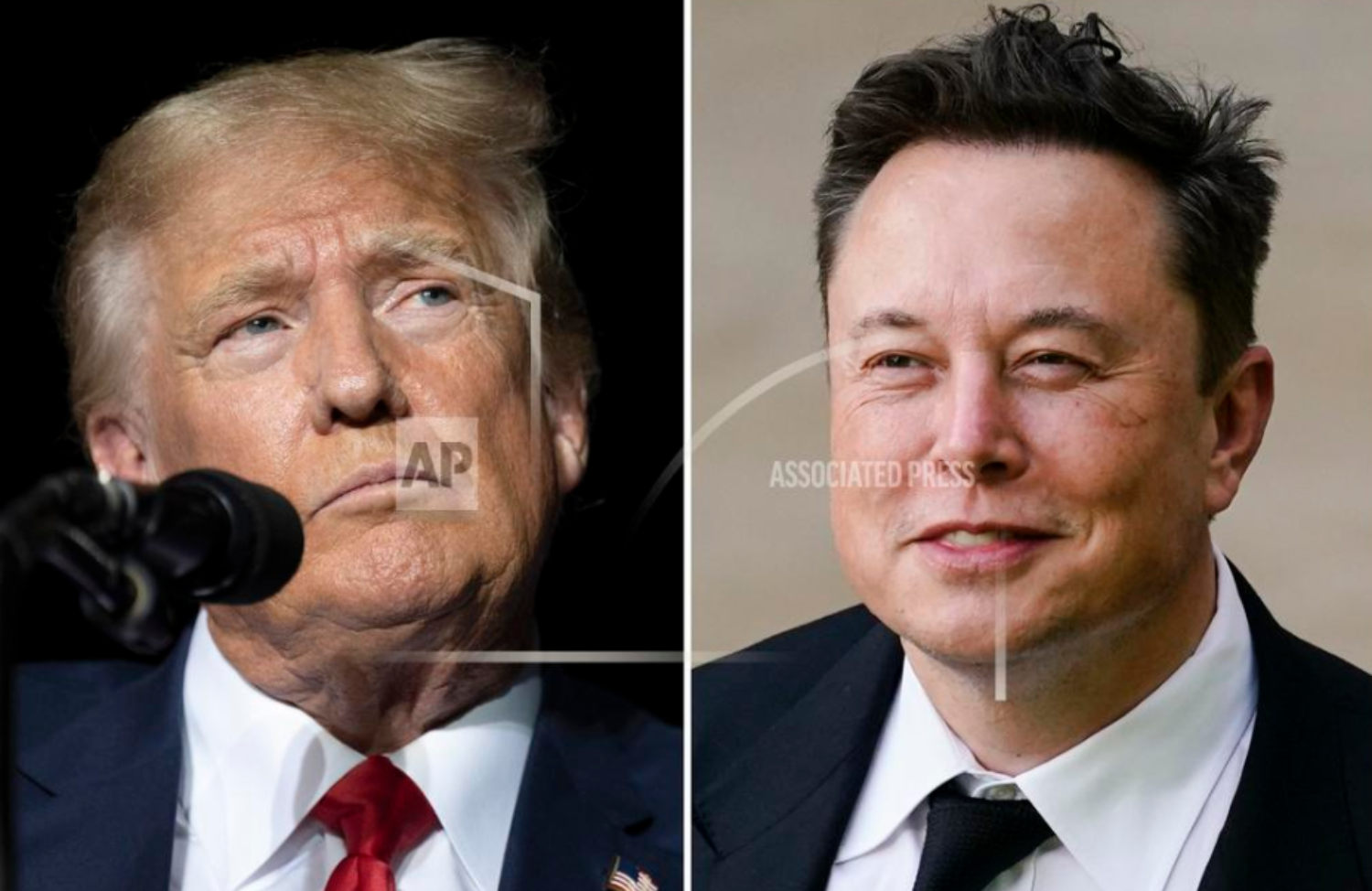
(1).png.6f4747c91019c6fa75d96b24326bf996.png)



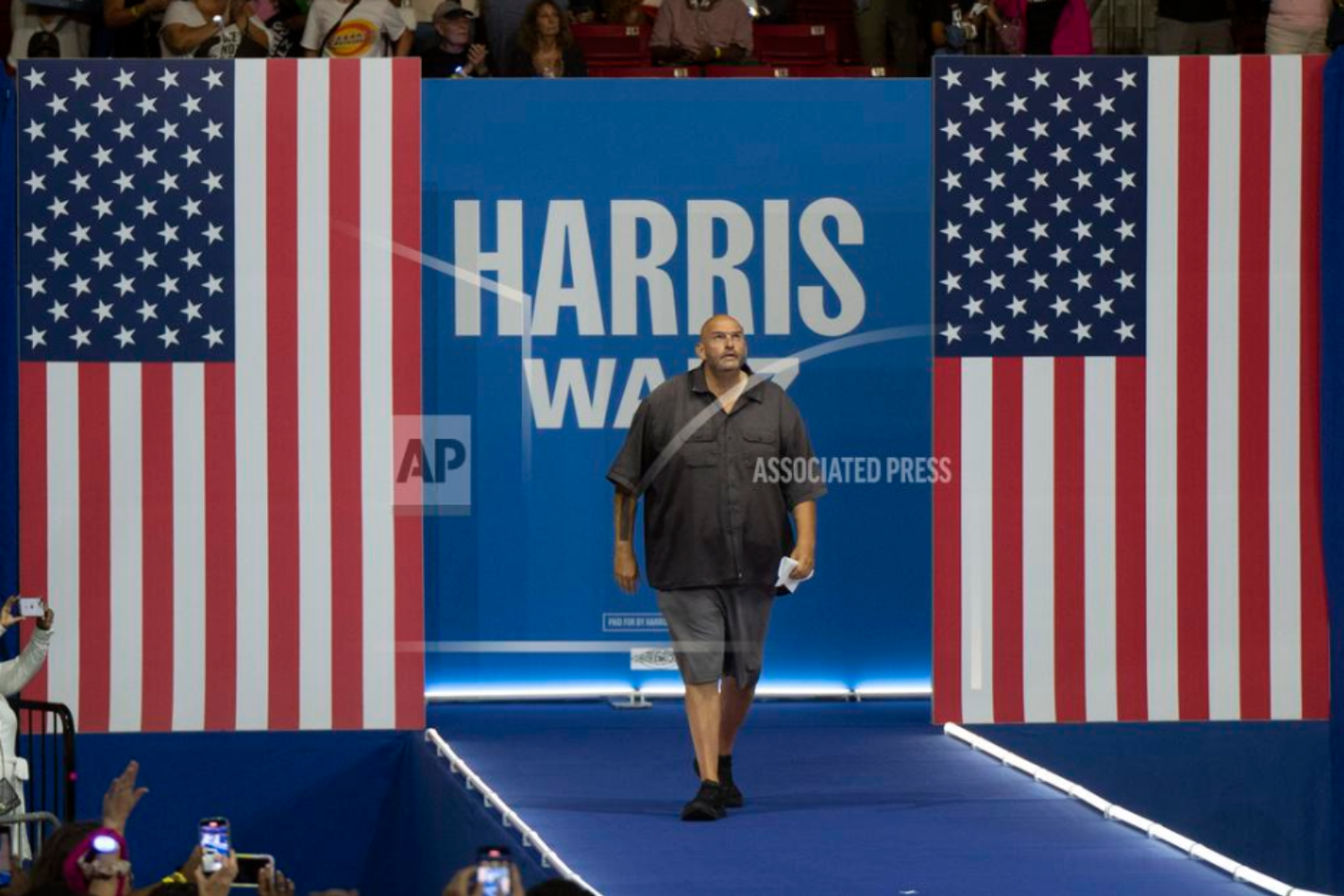
(1).png.dc1c59cdc01632f2cebe2bd6de029803.png)


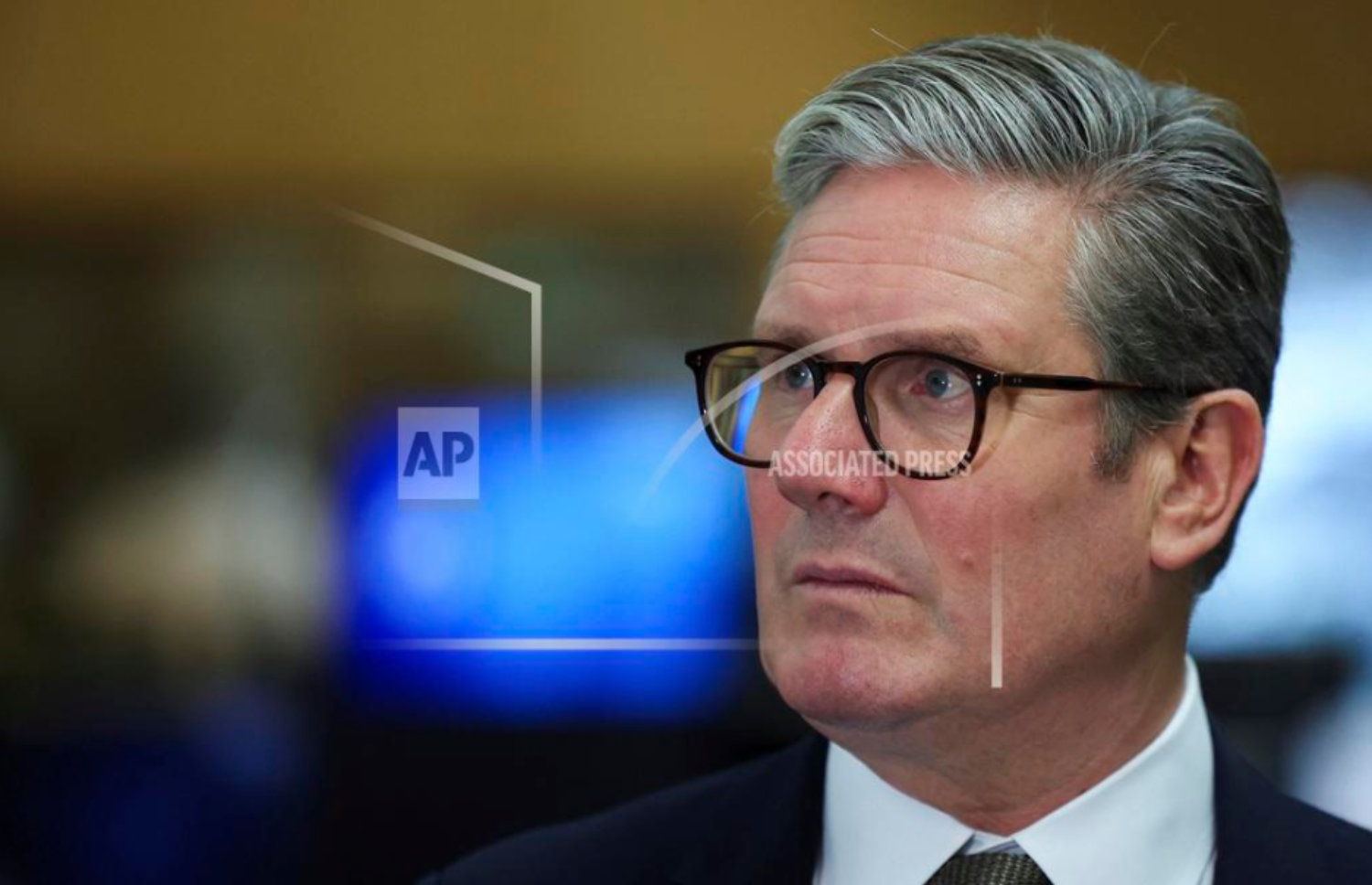
(1).png.21d3bd5b8b59ac7512fc8d1b9f52b476.png)

